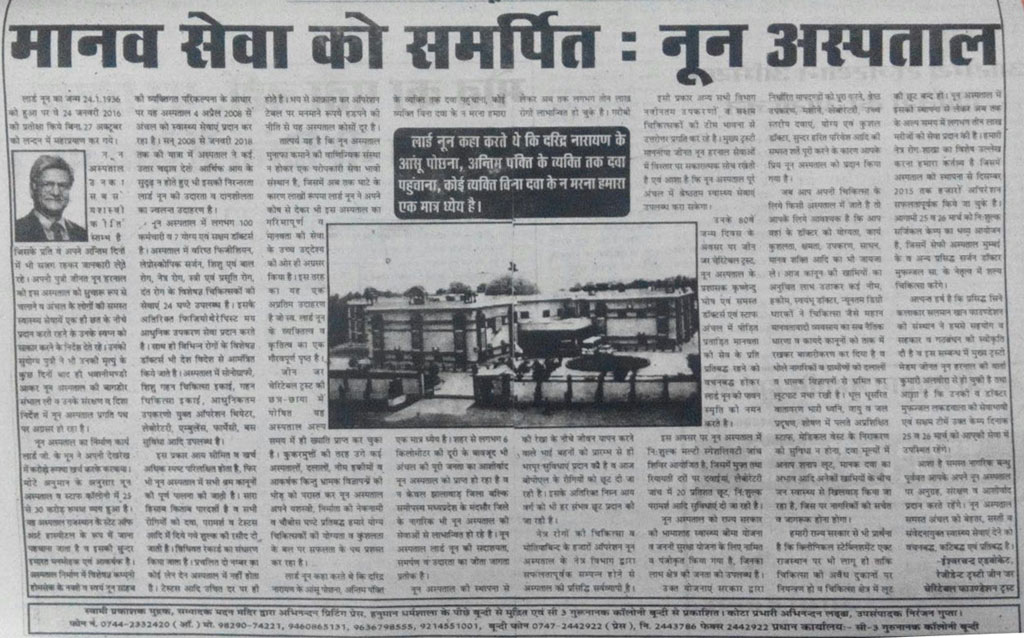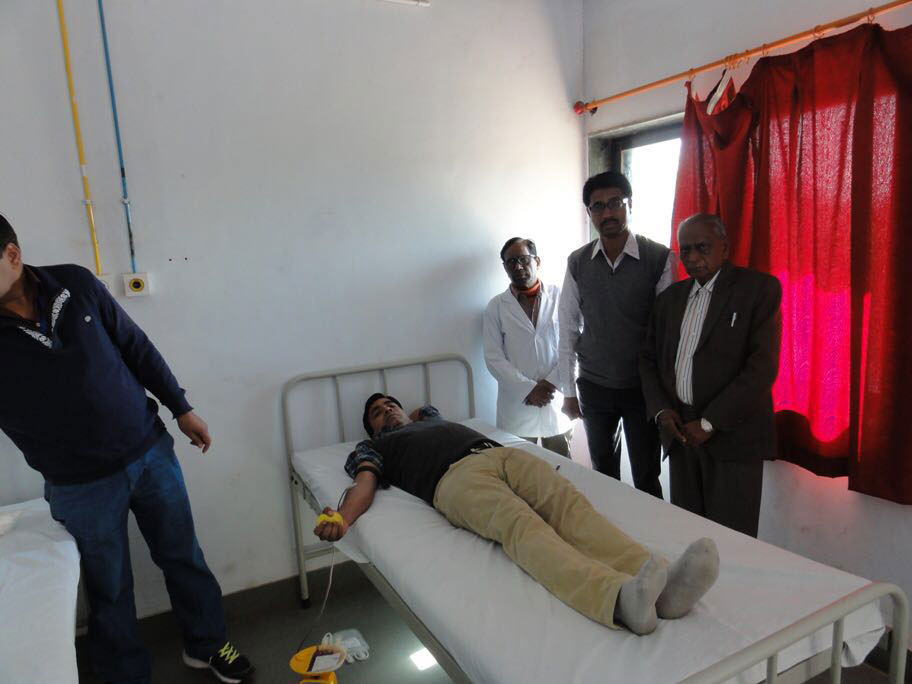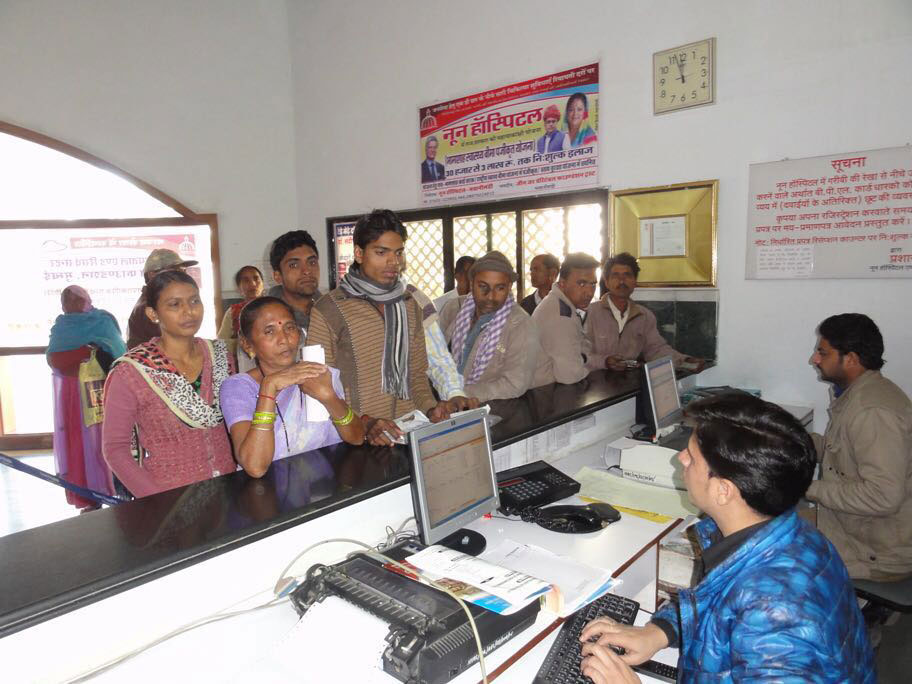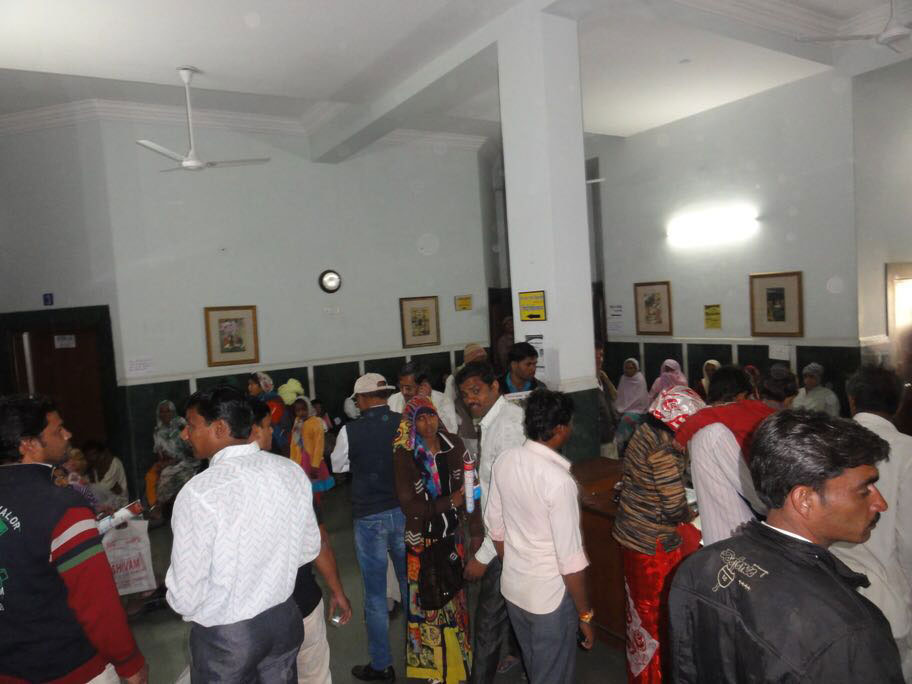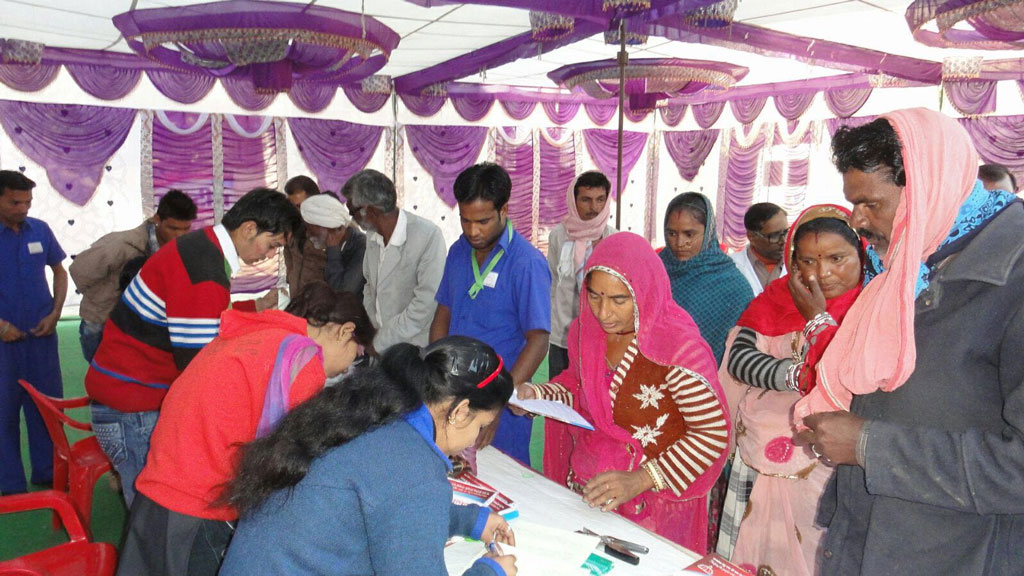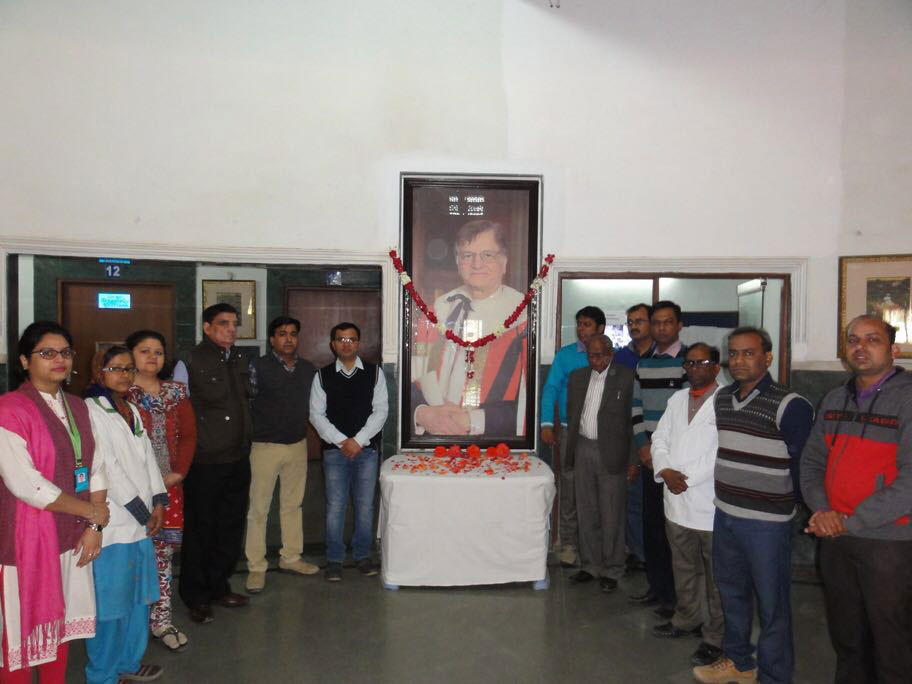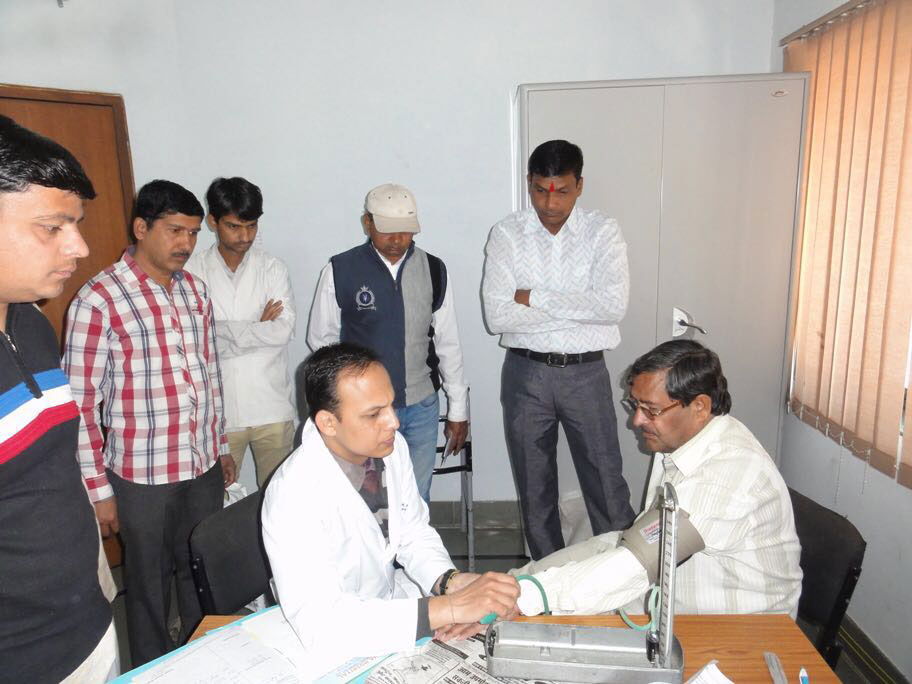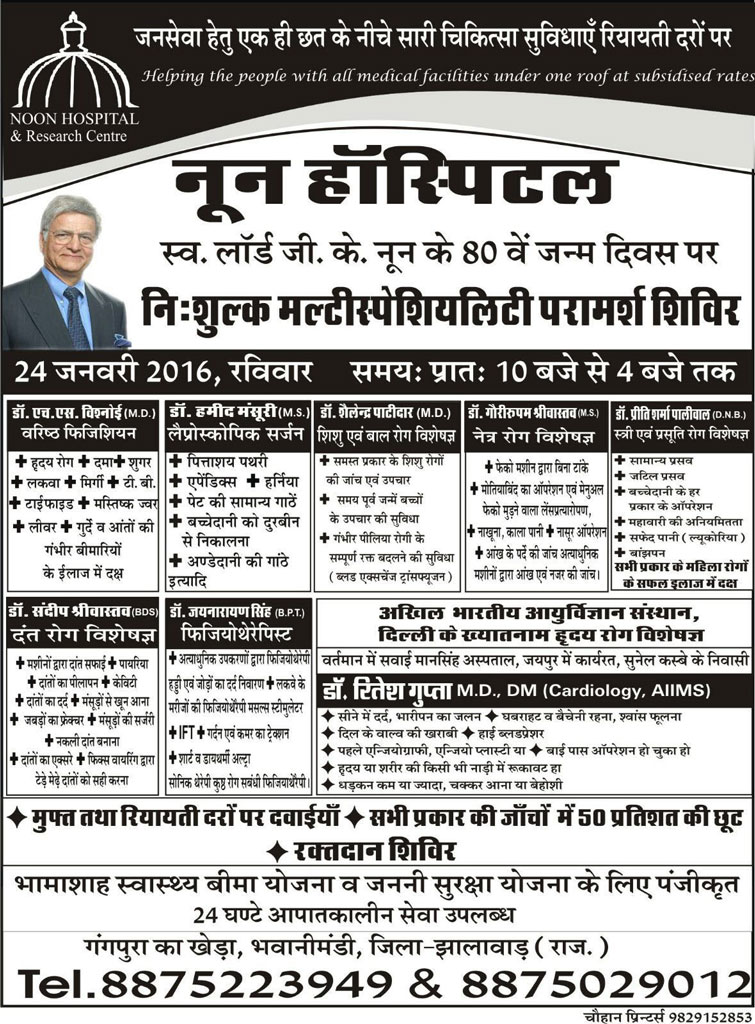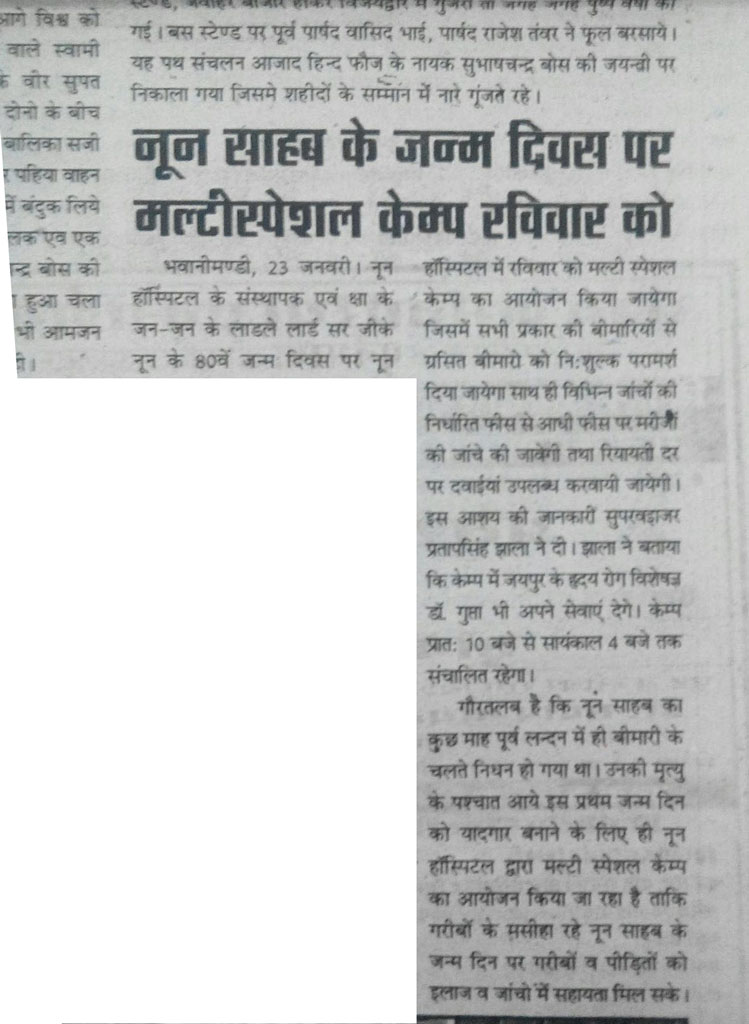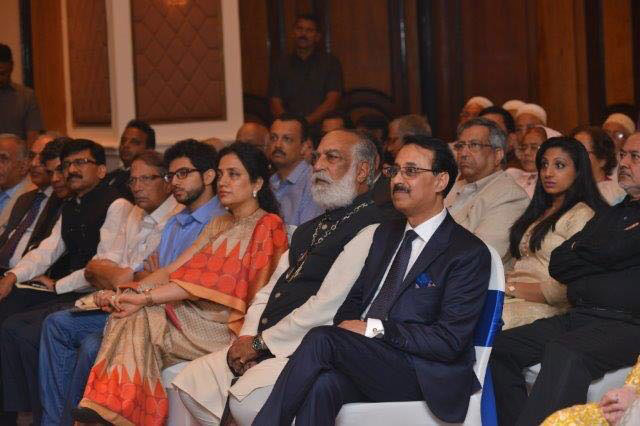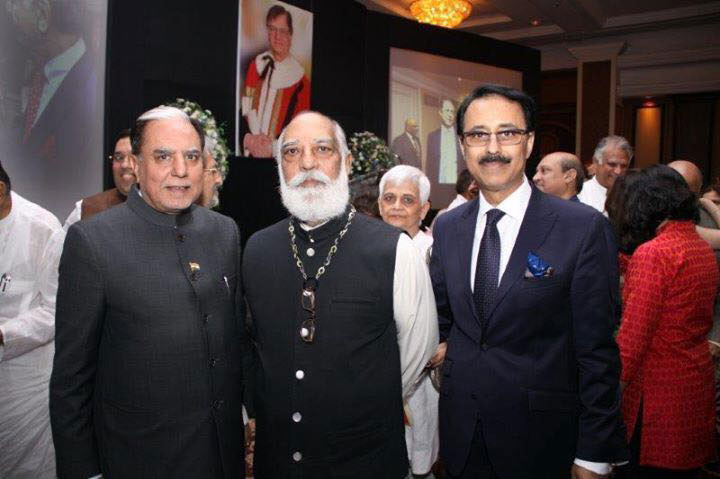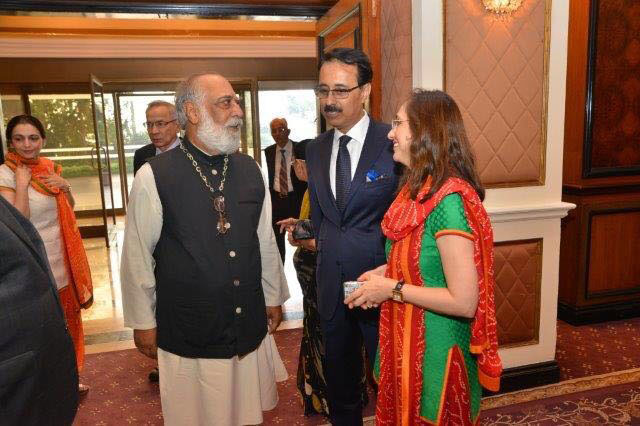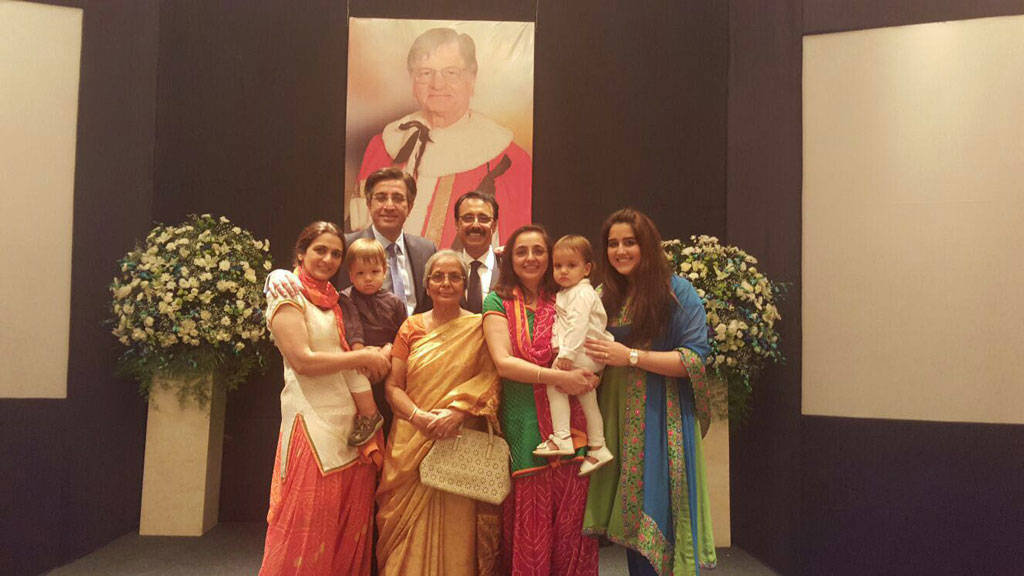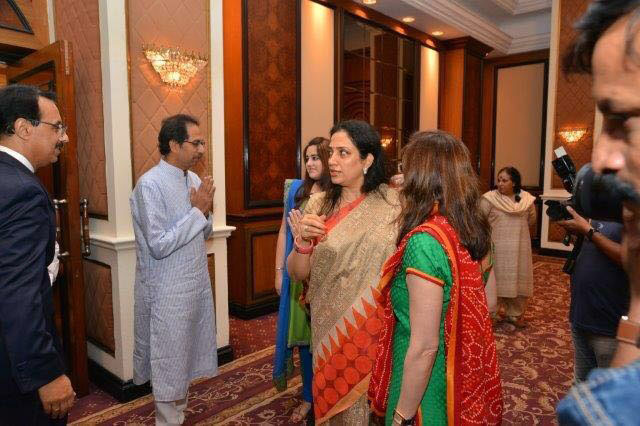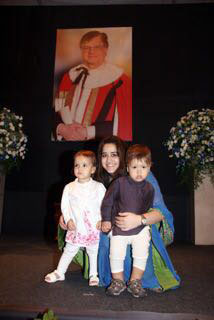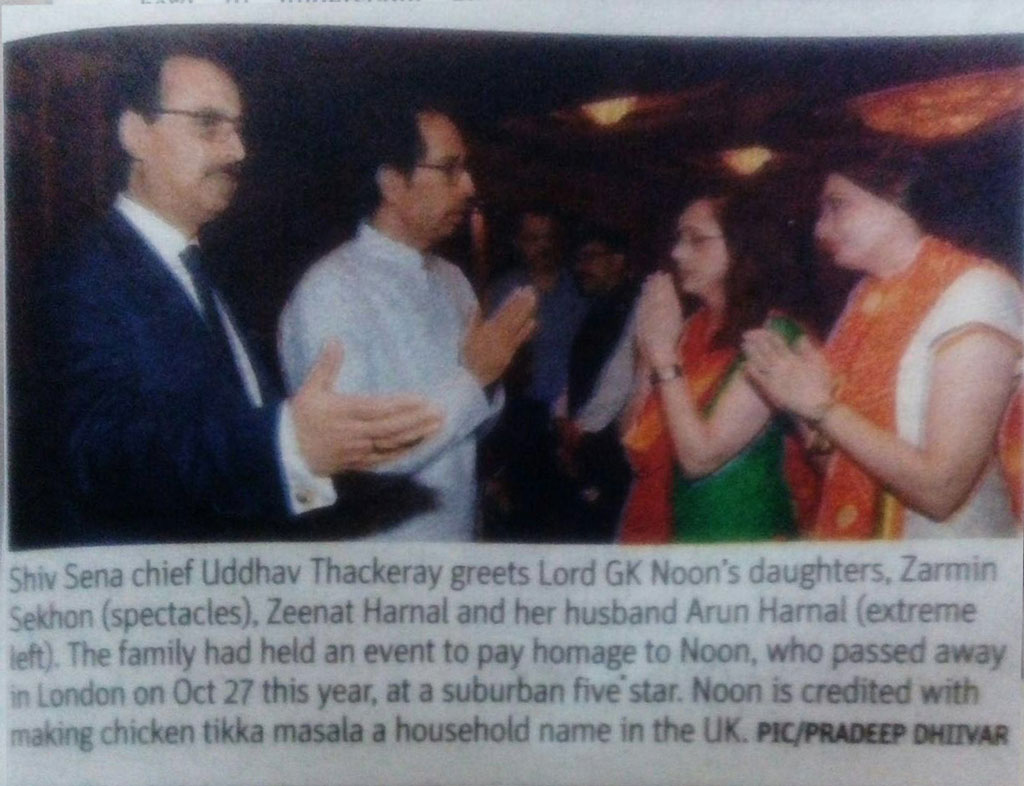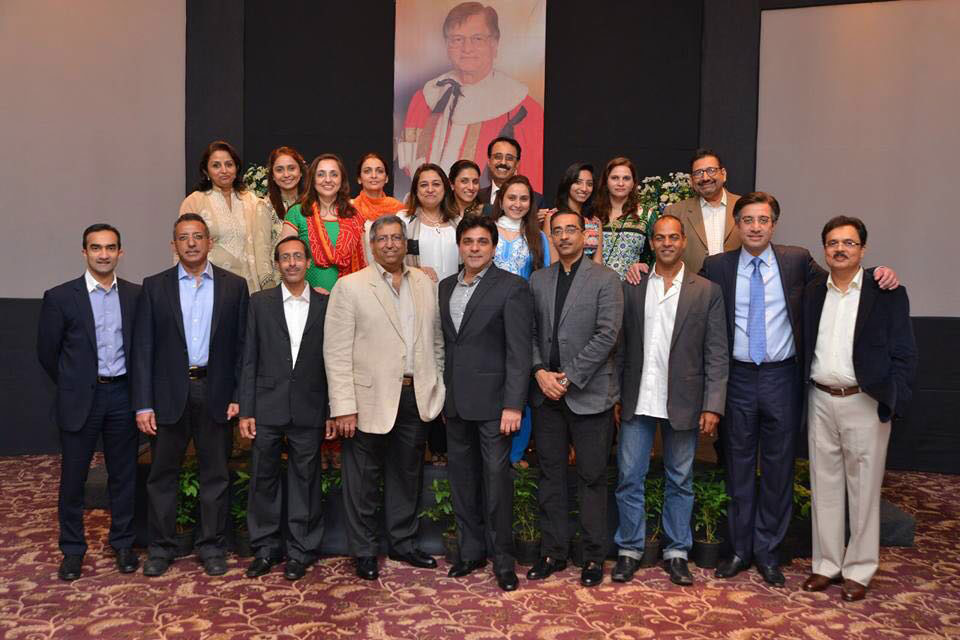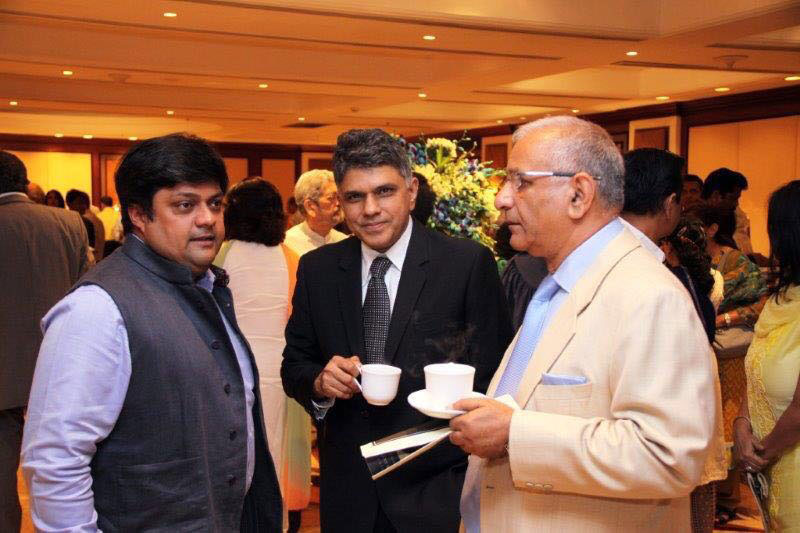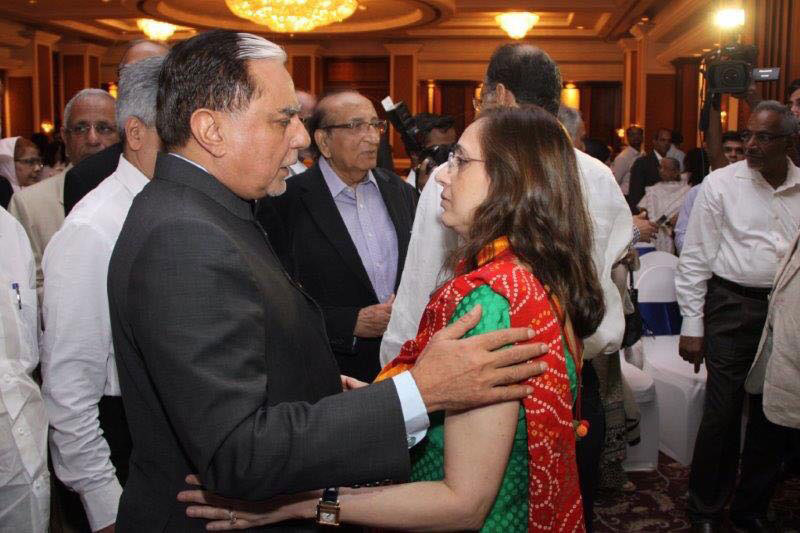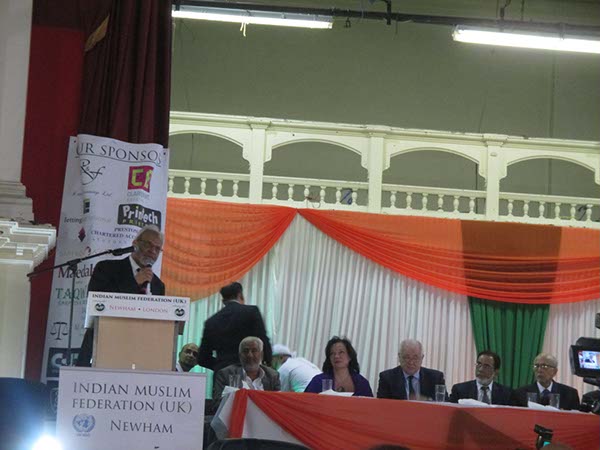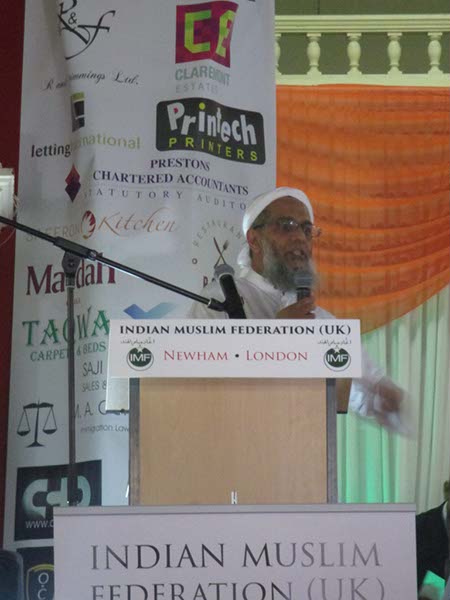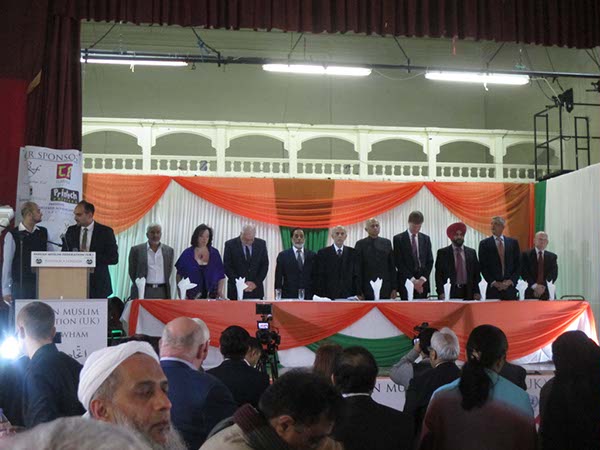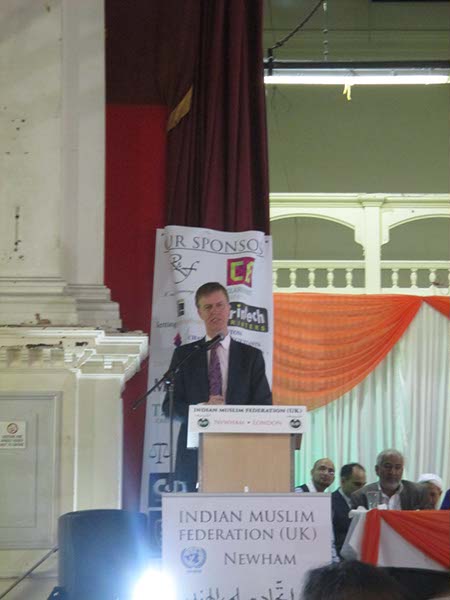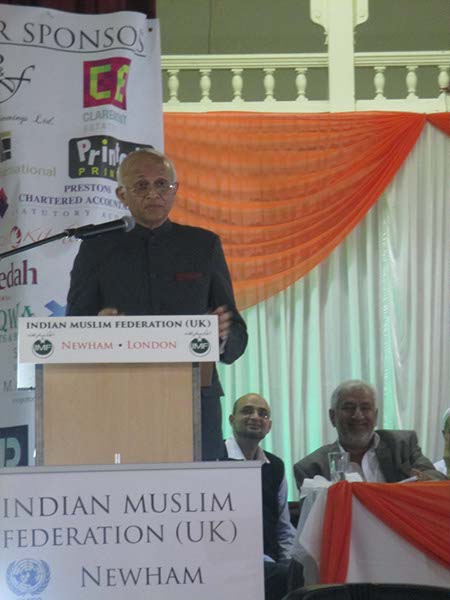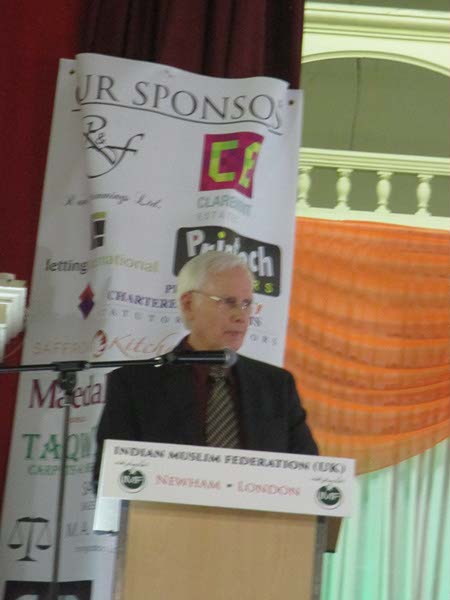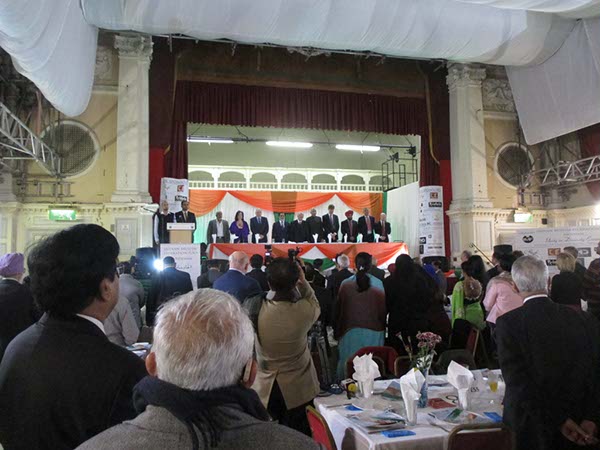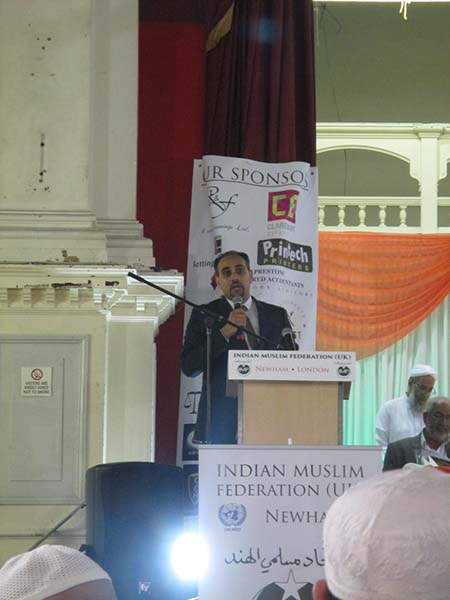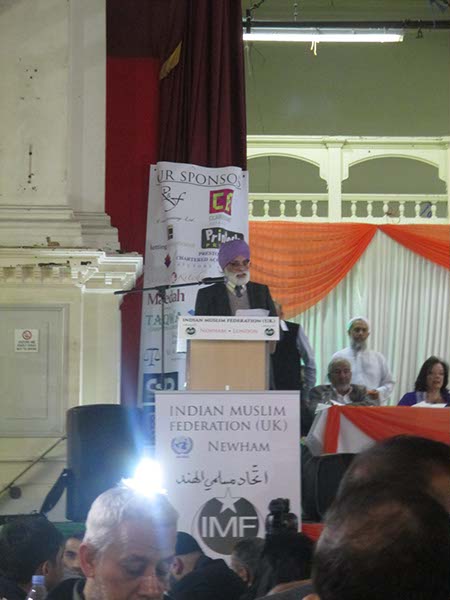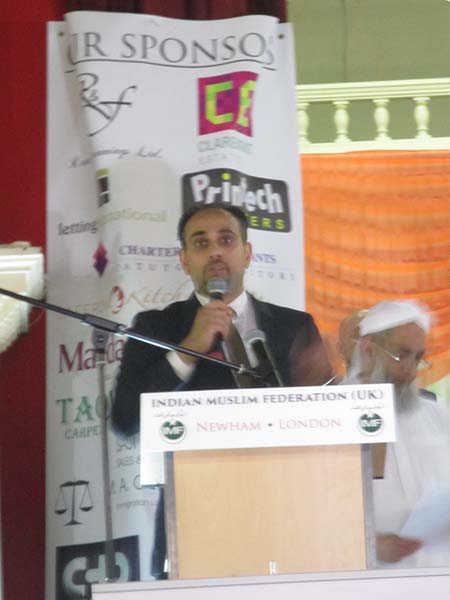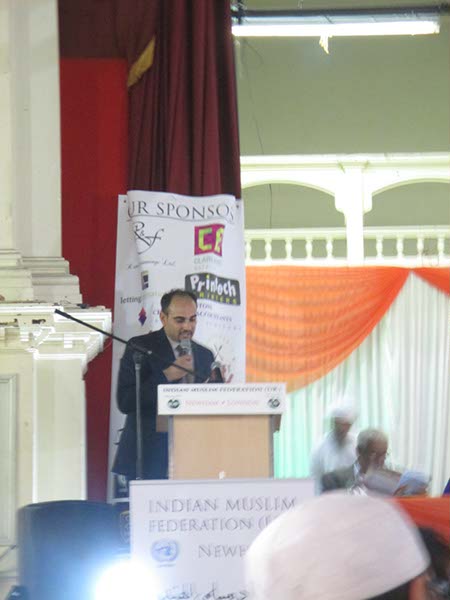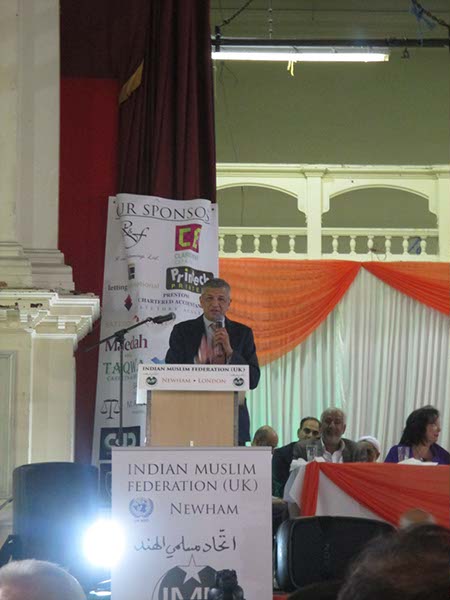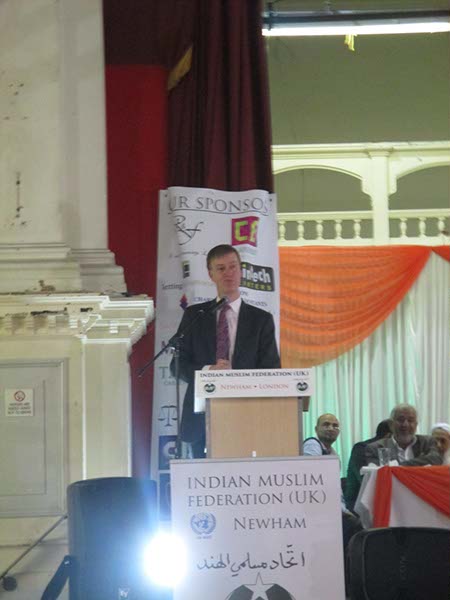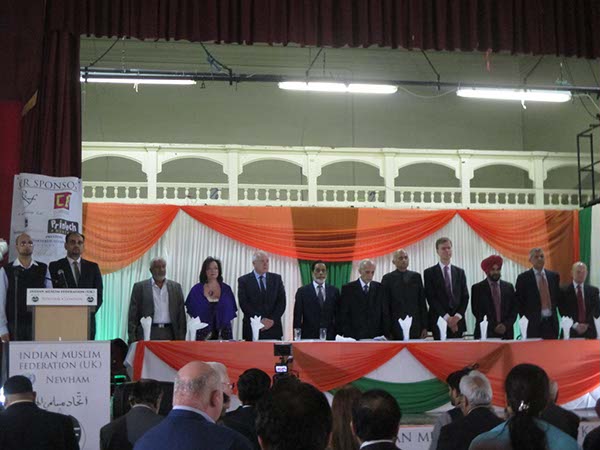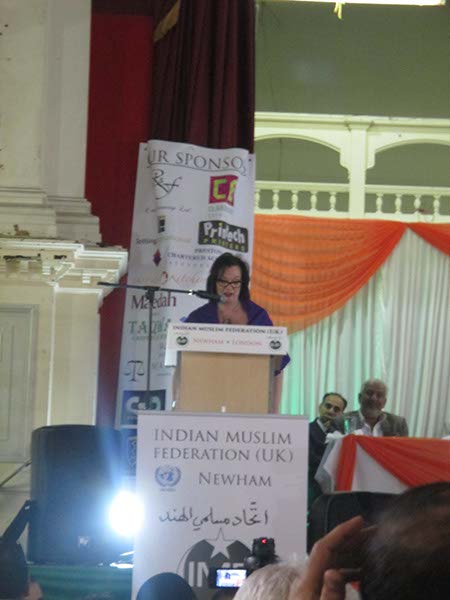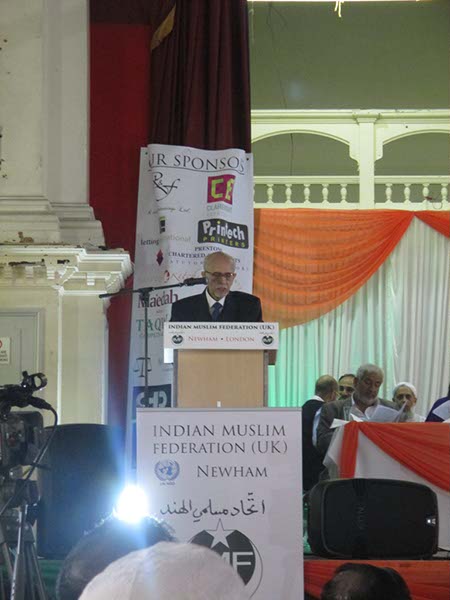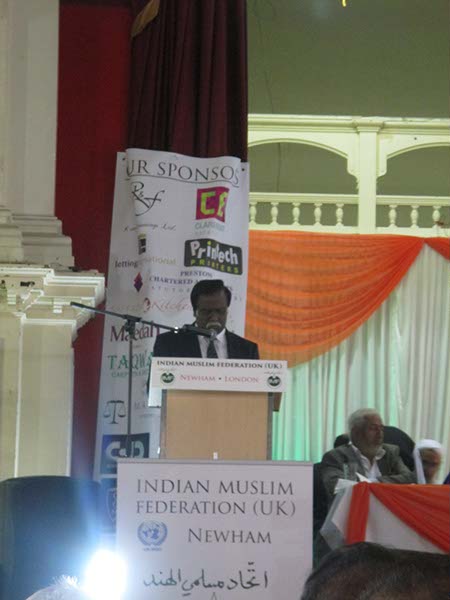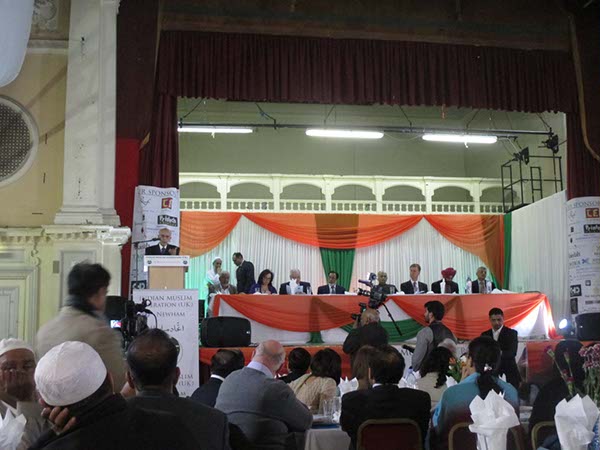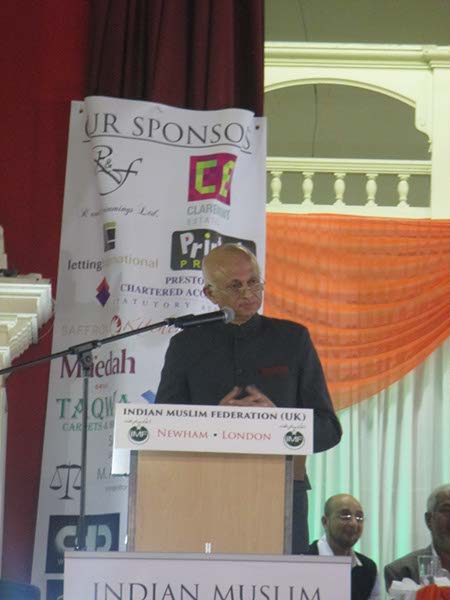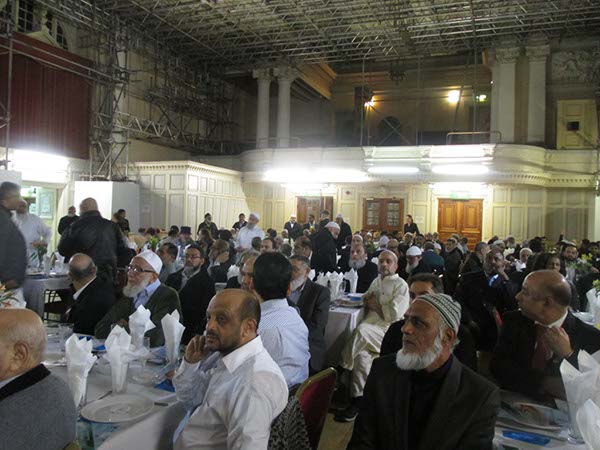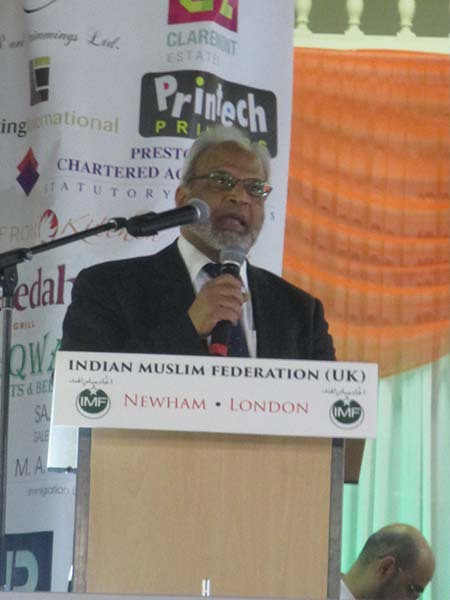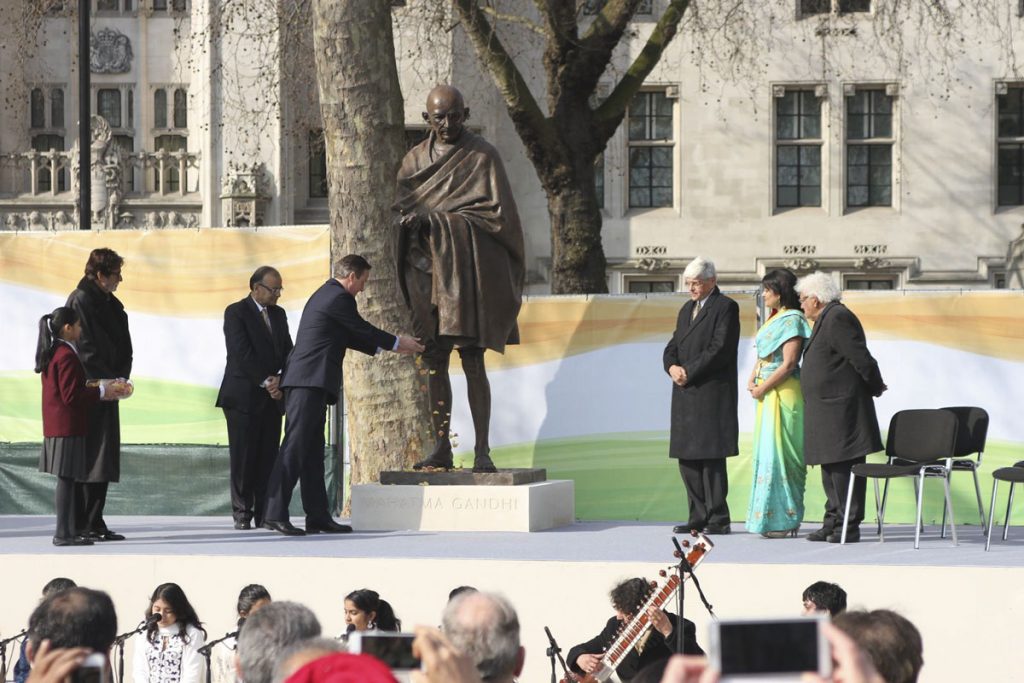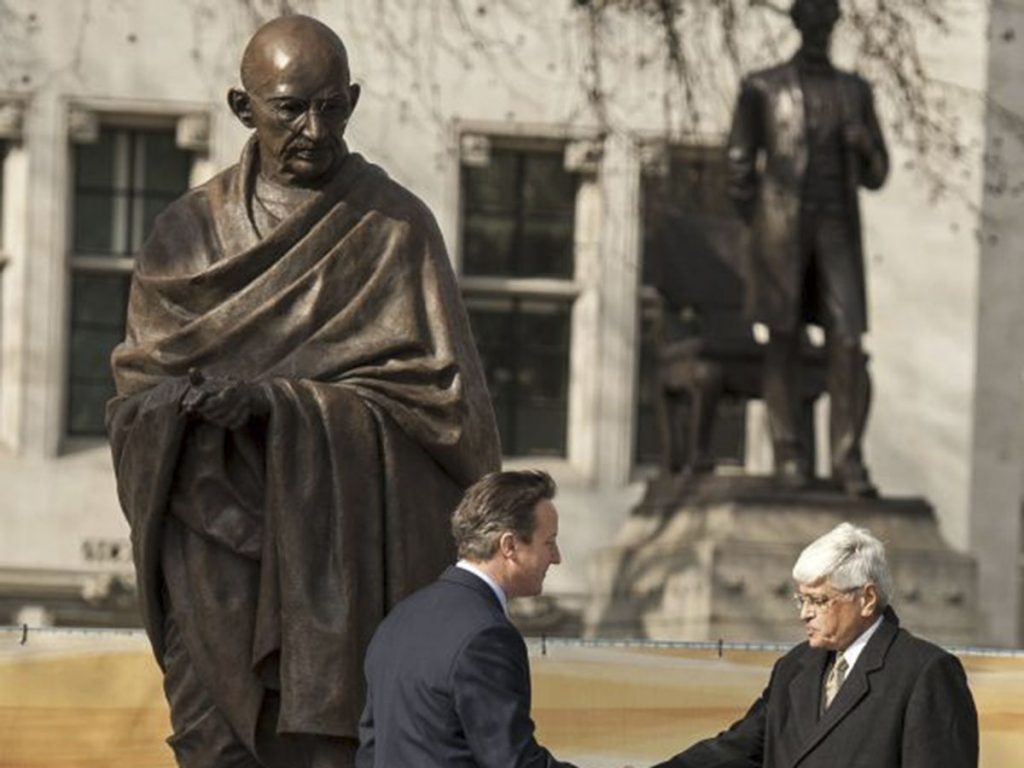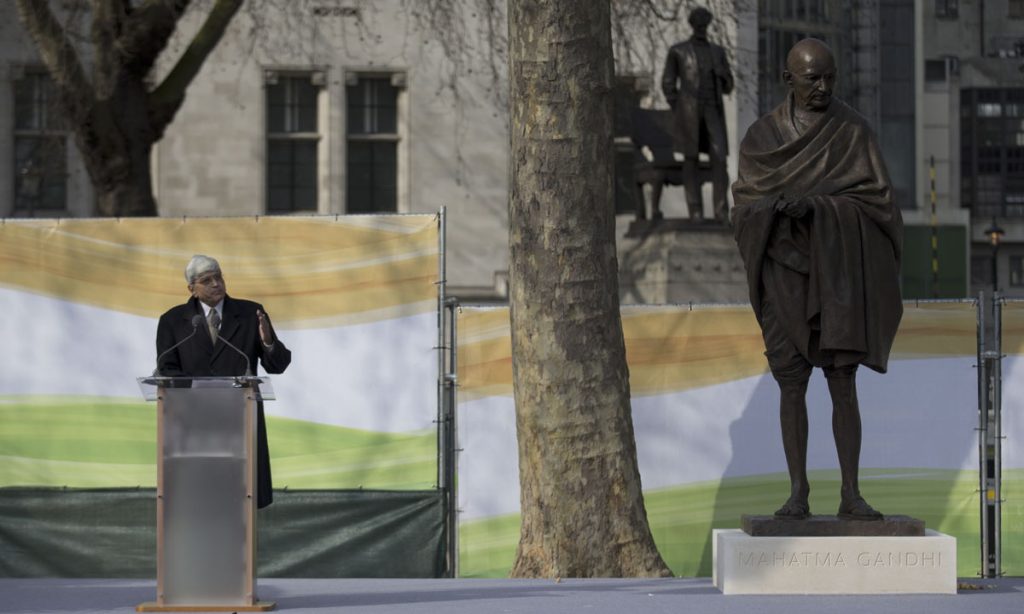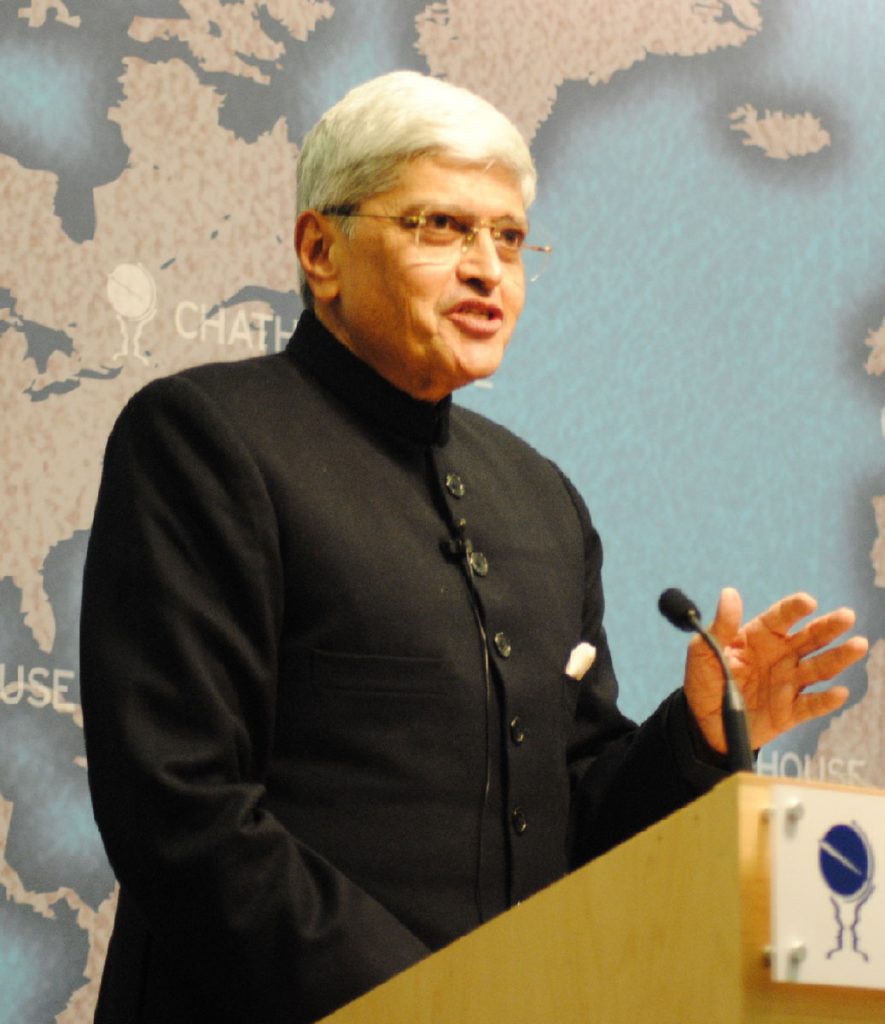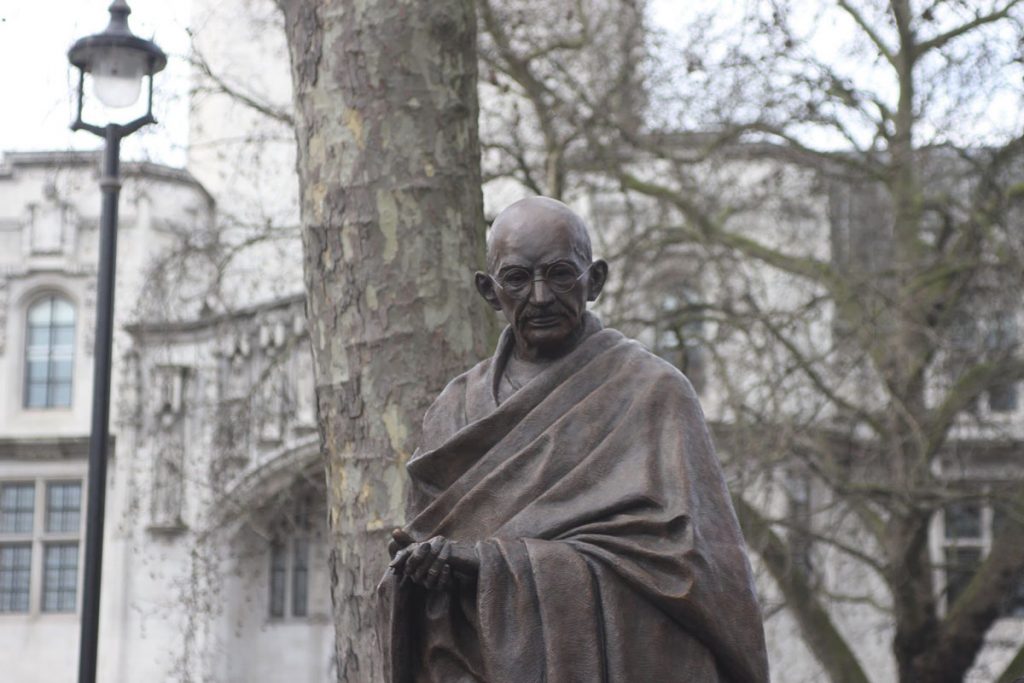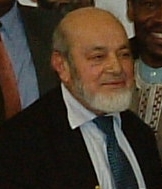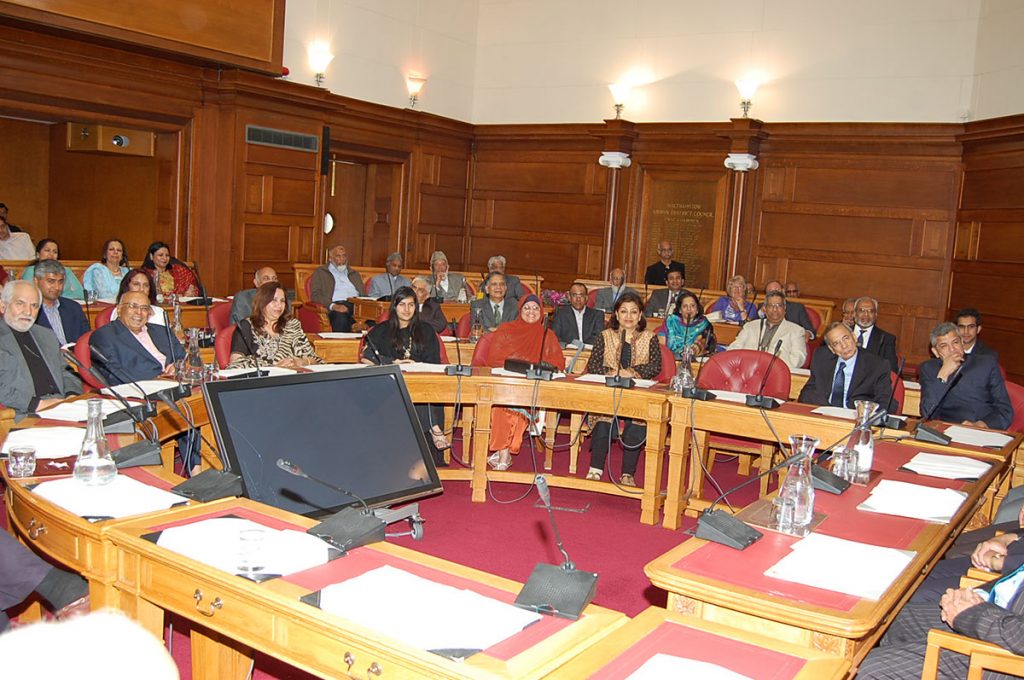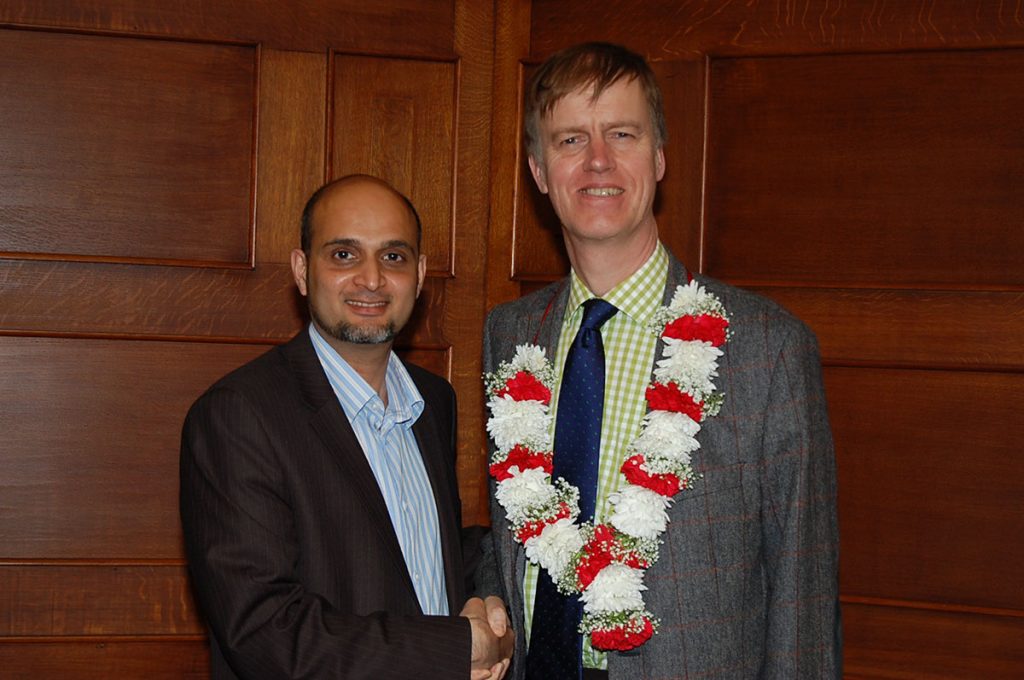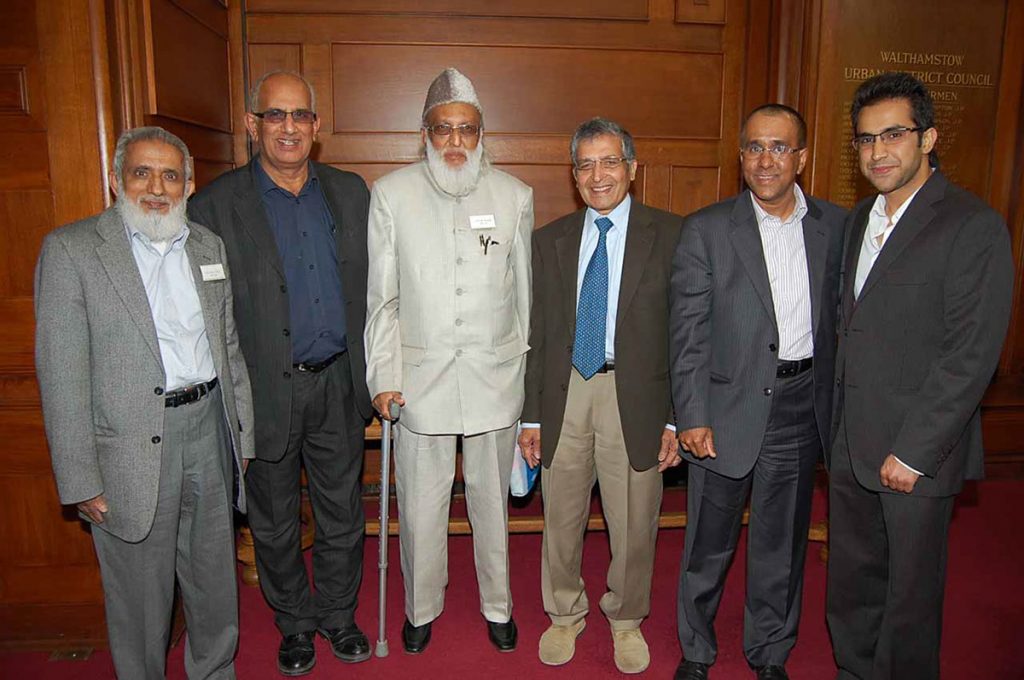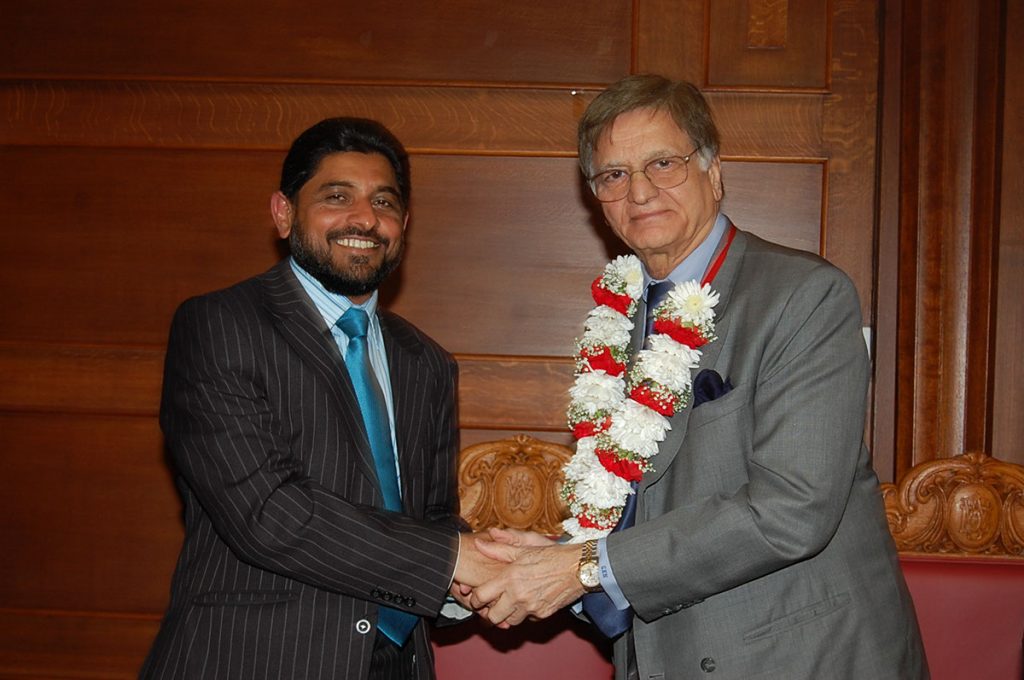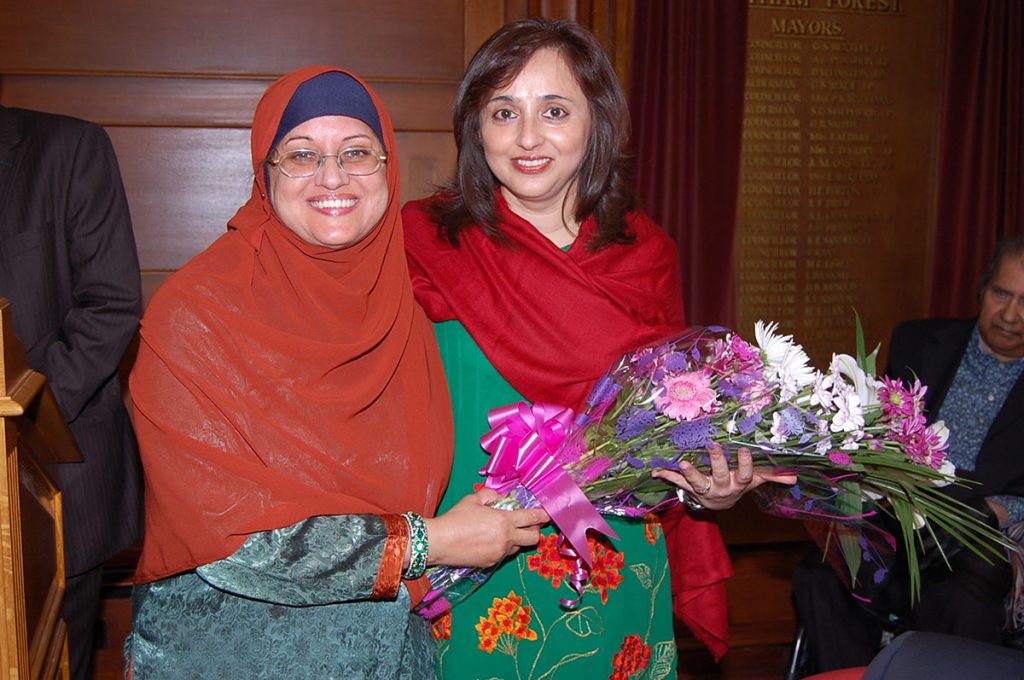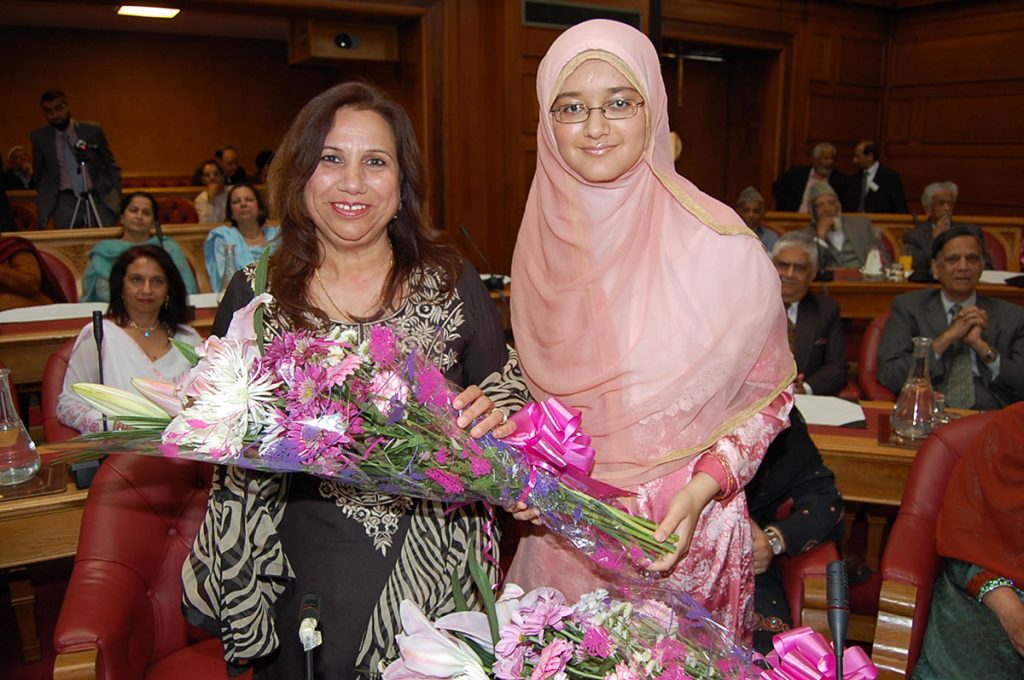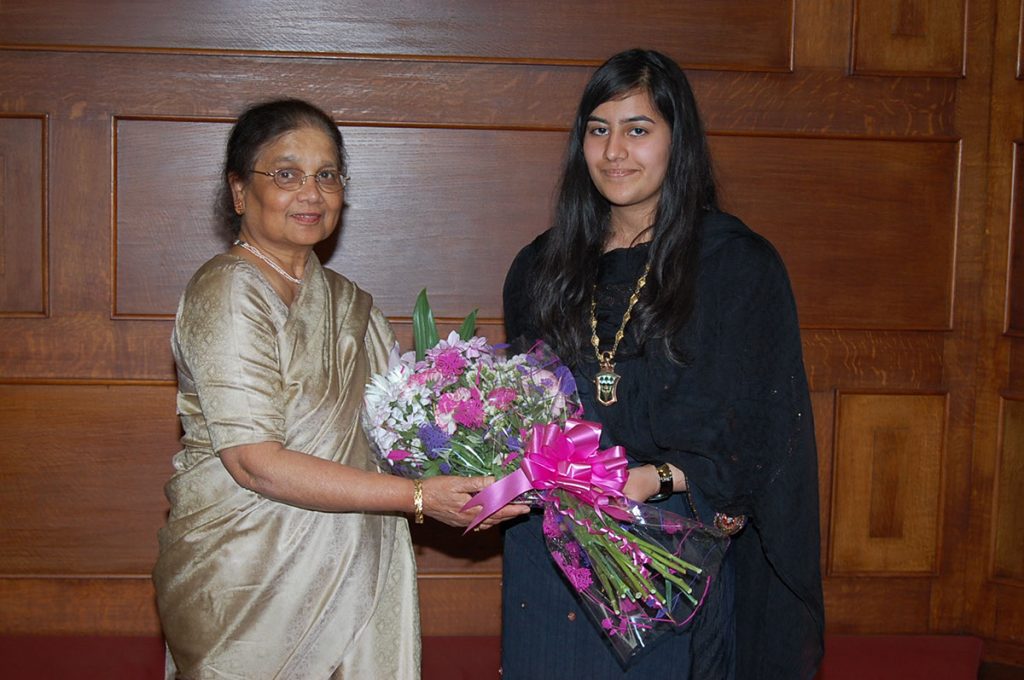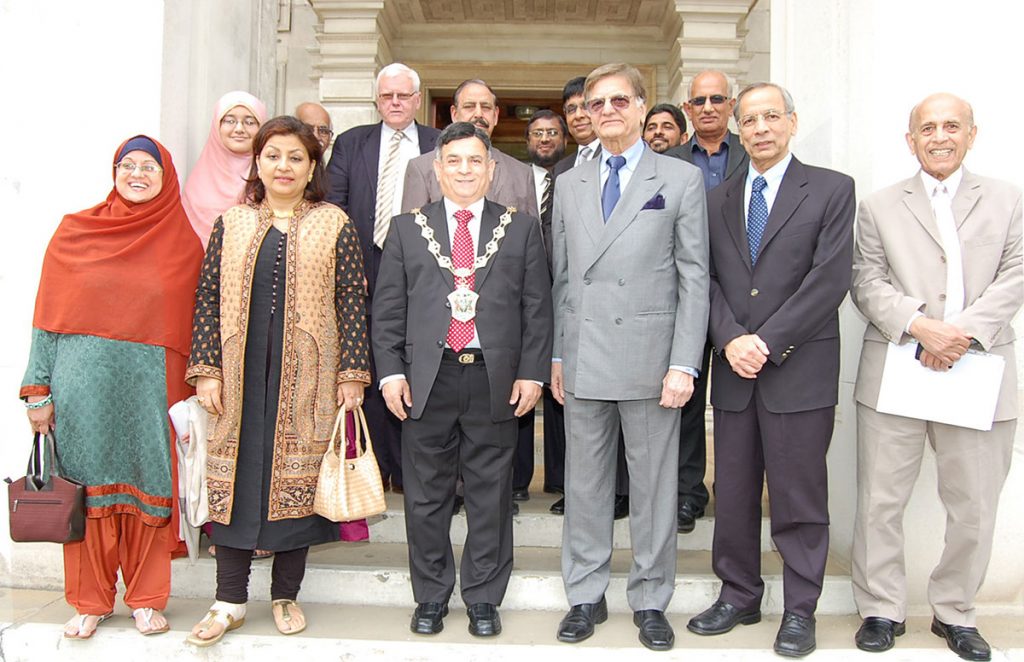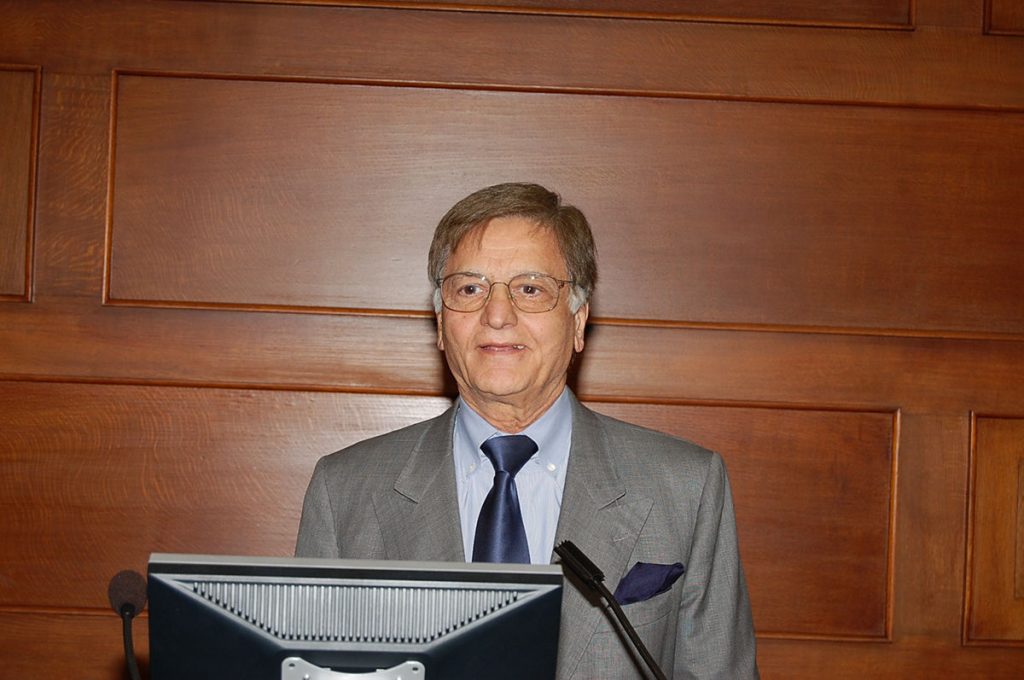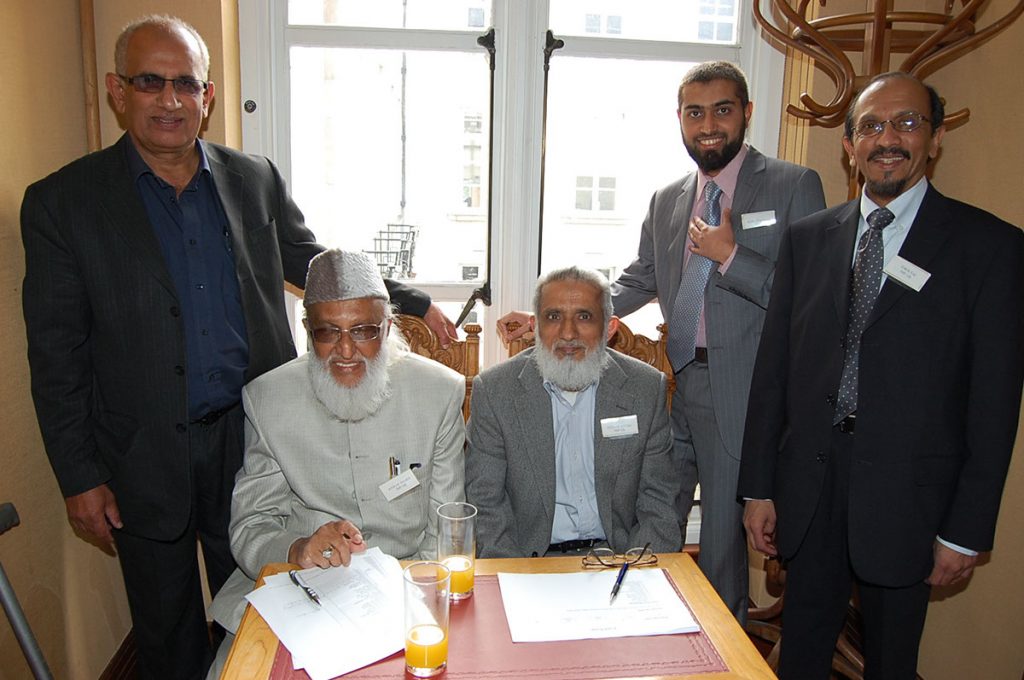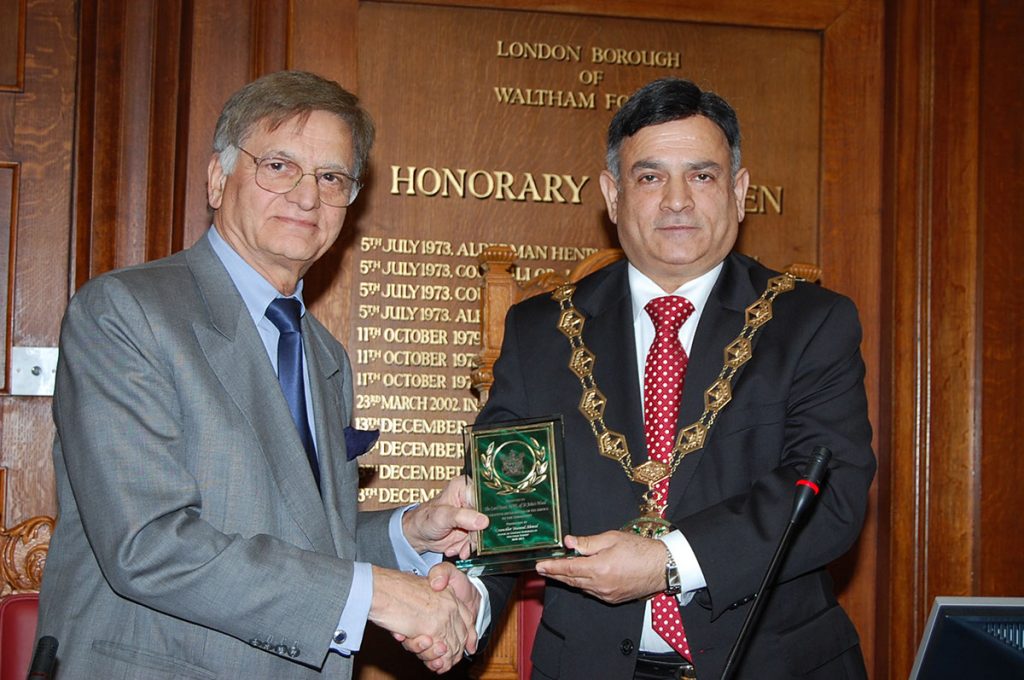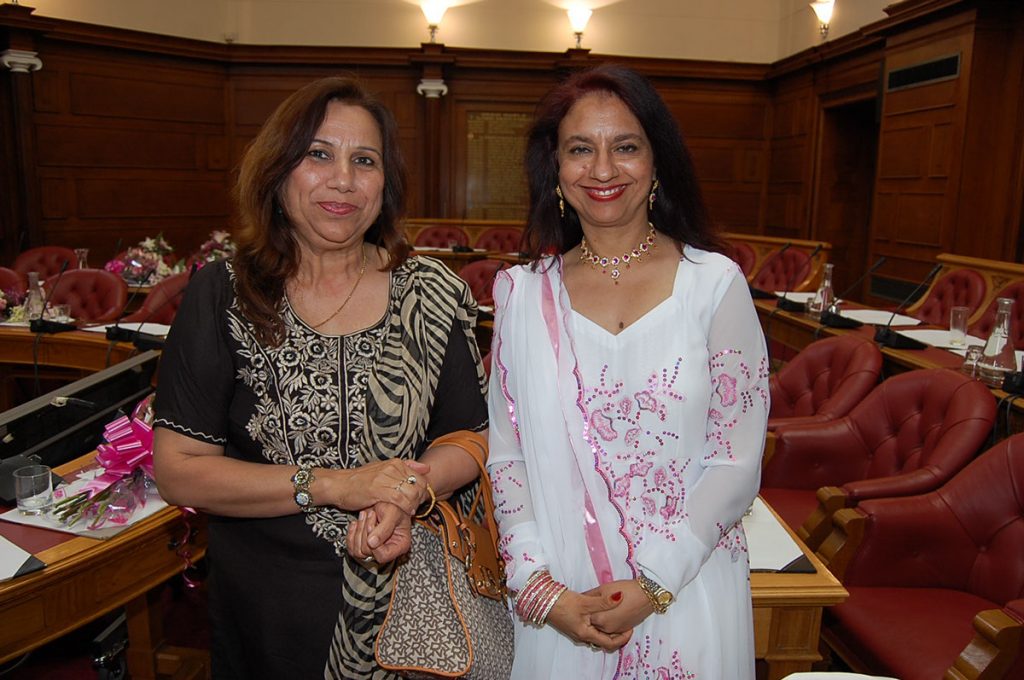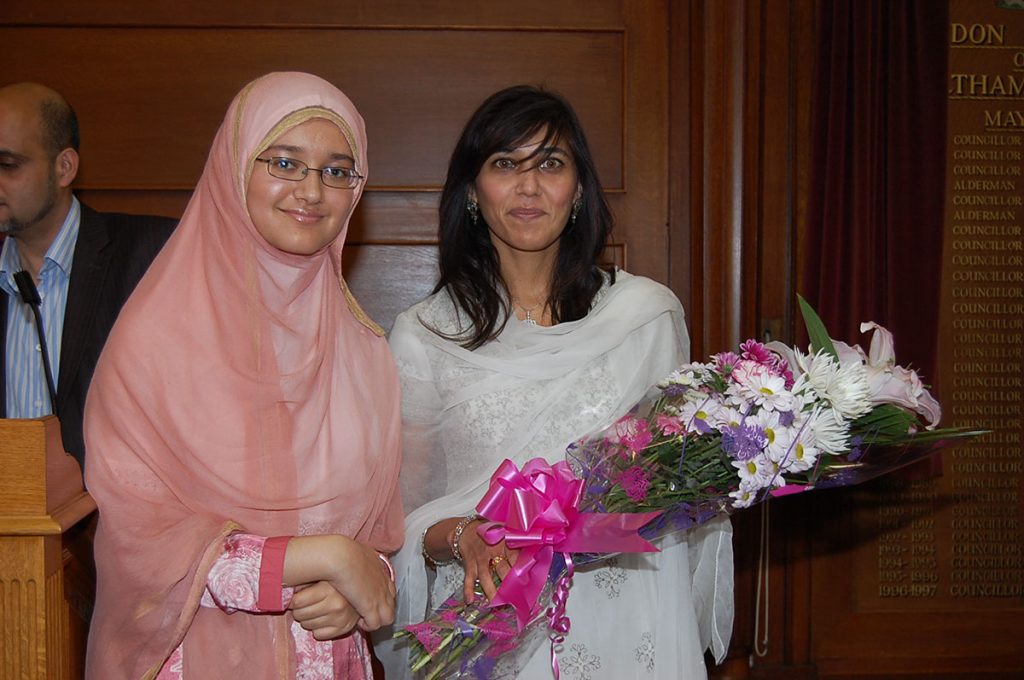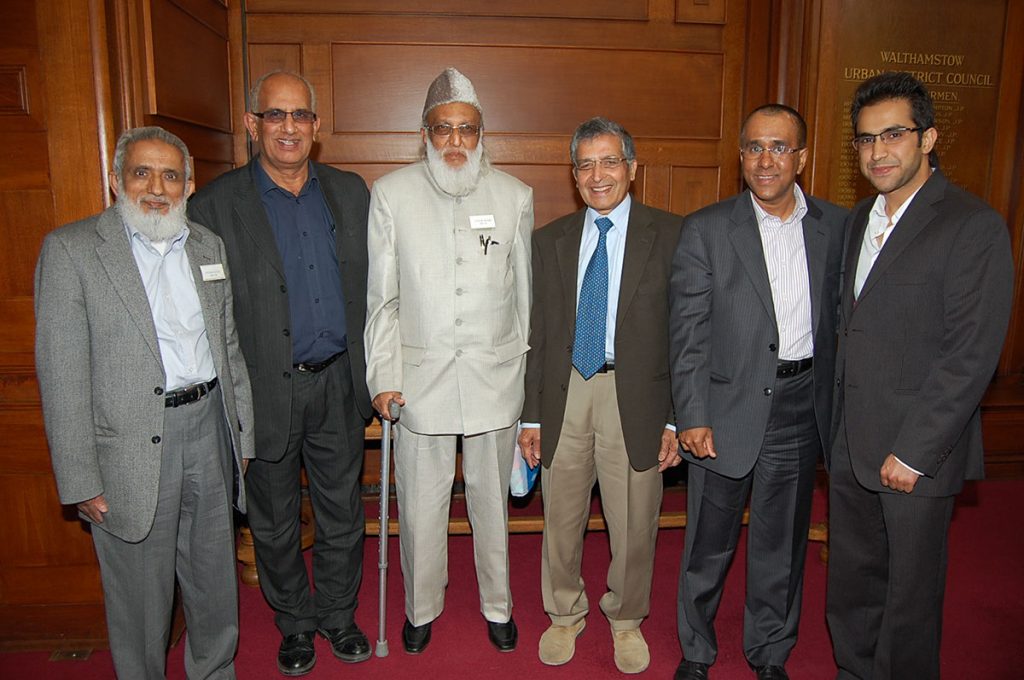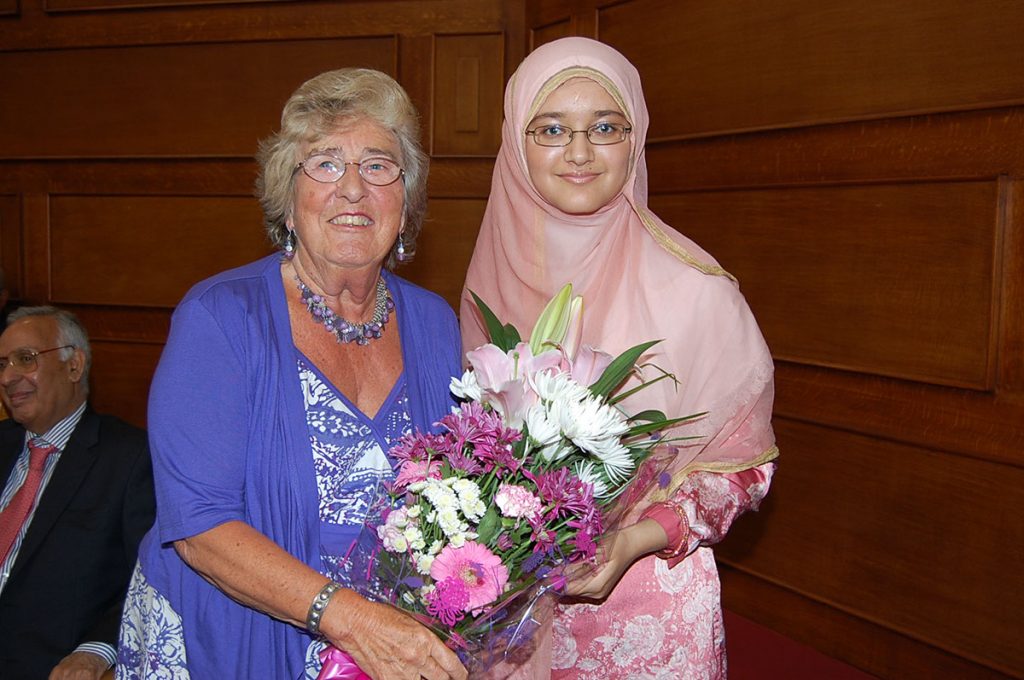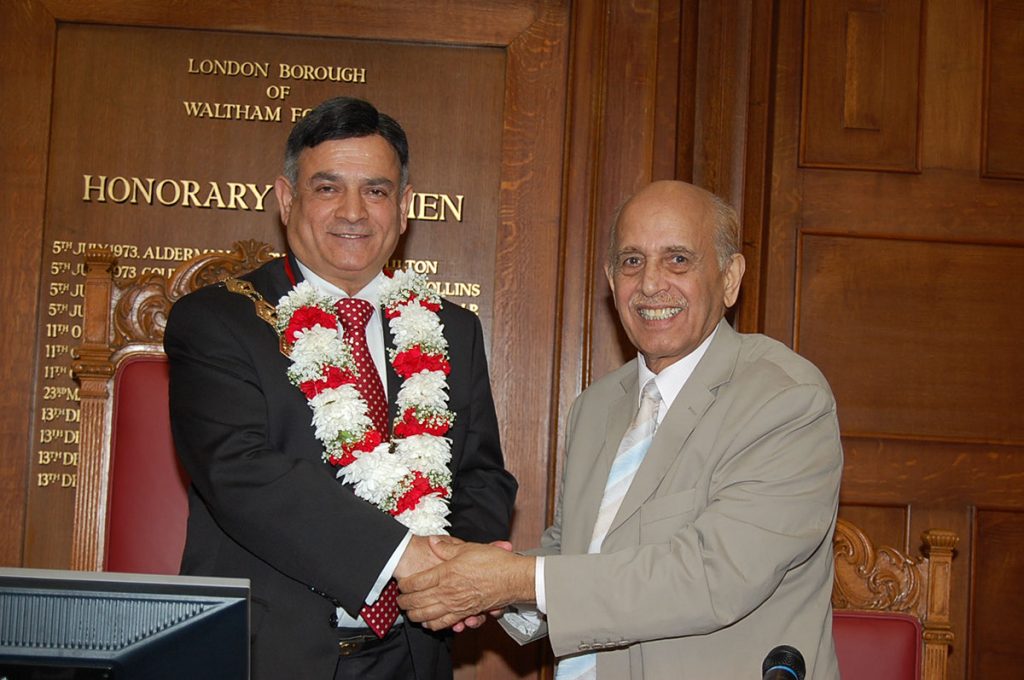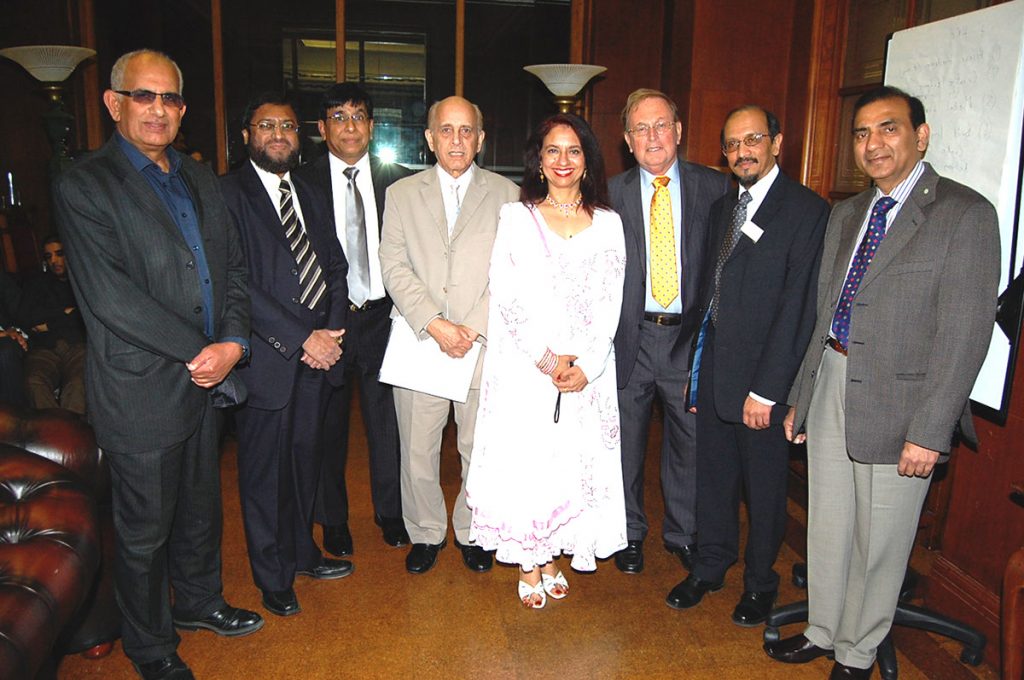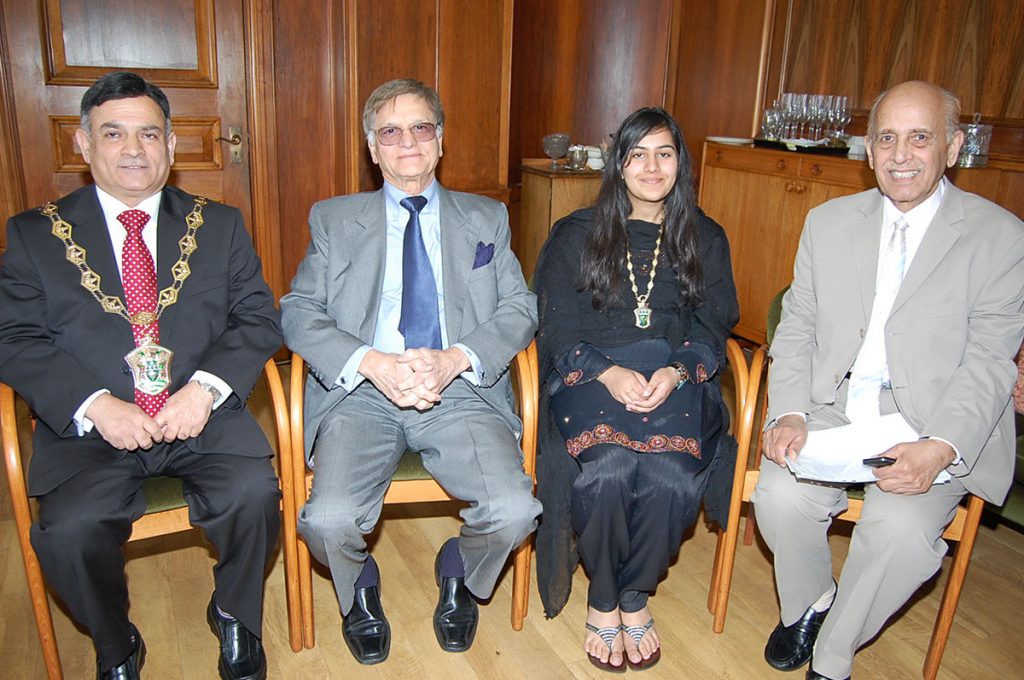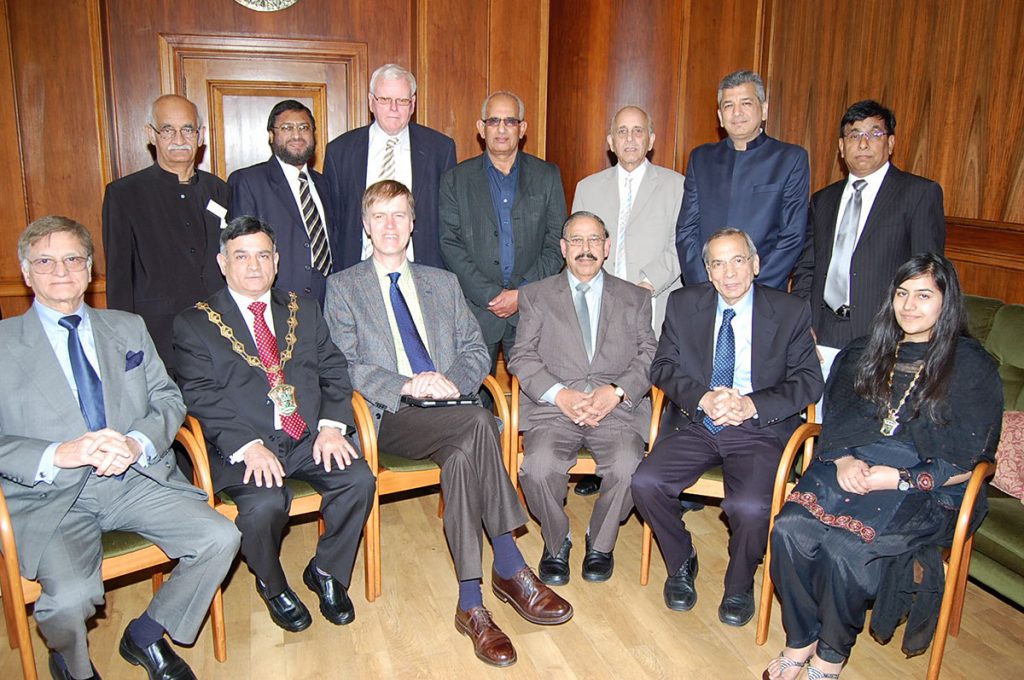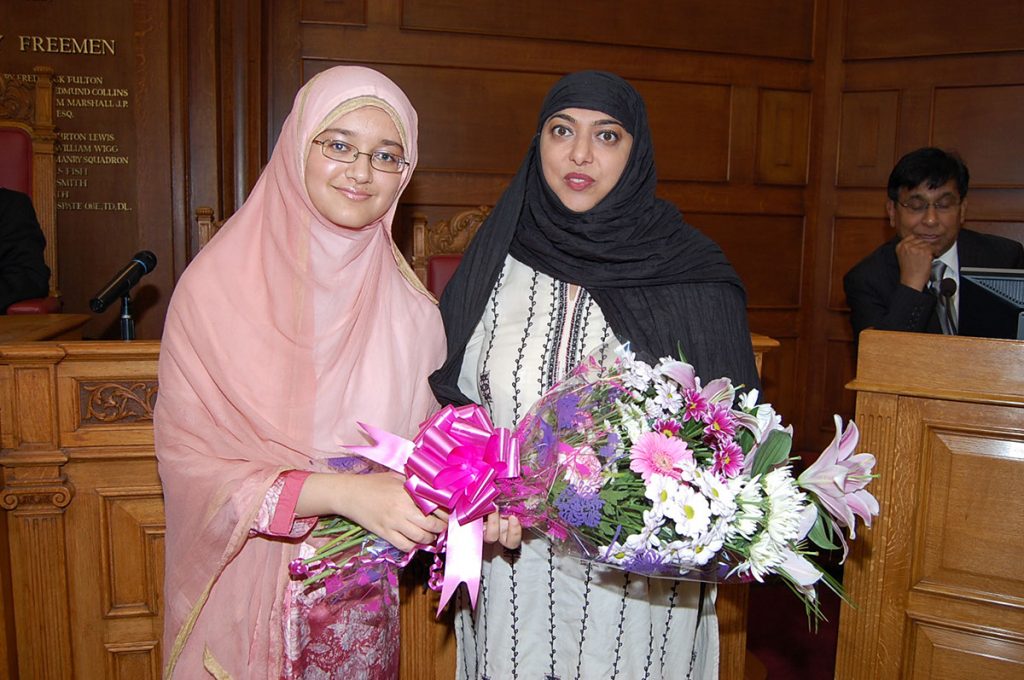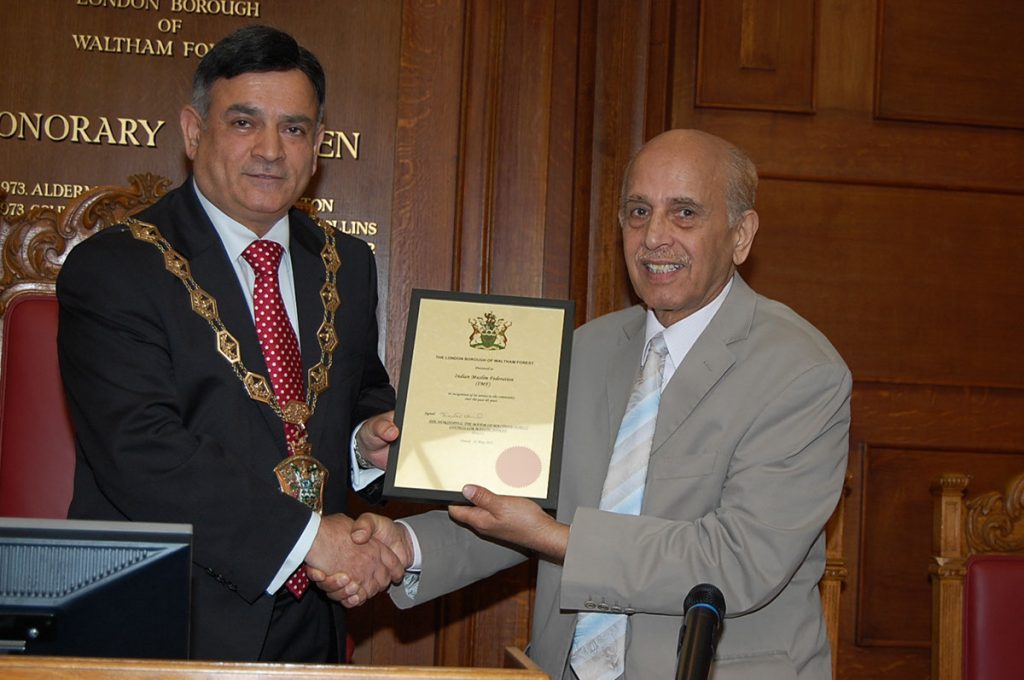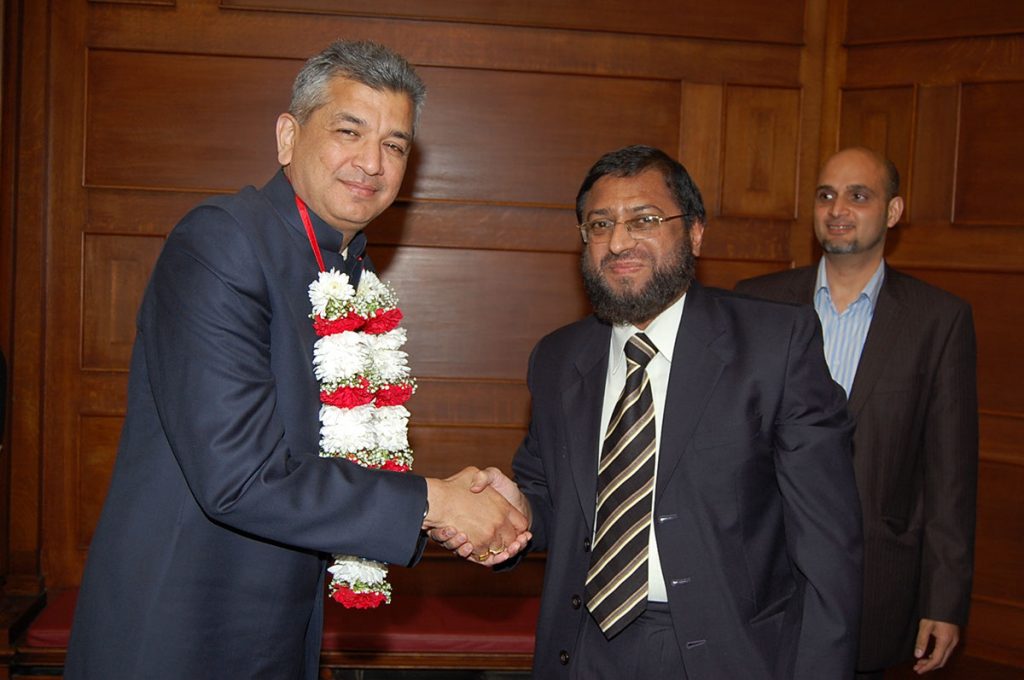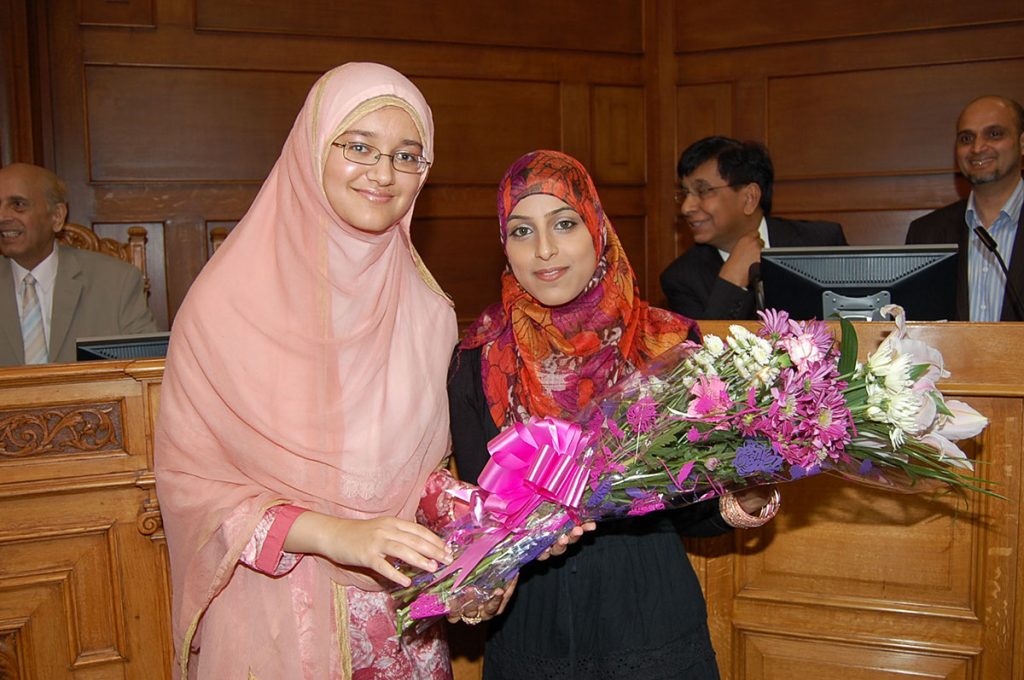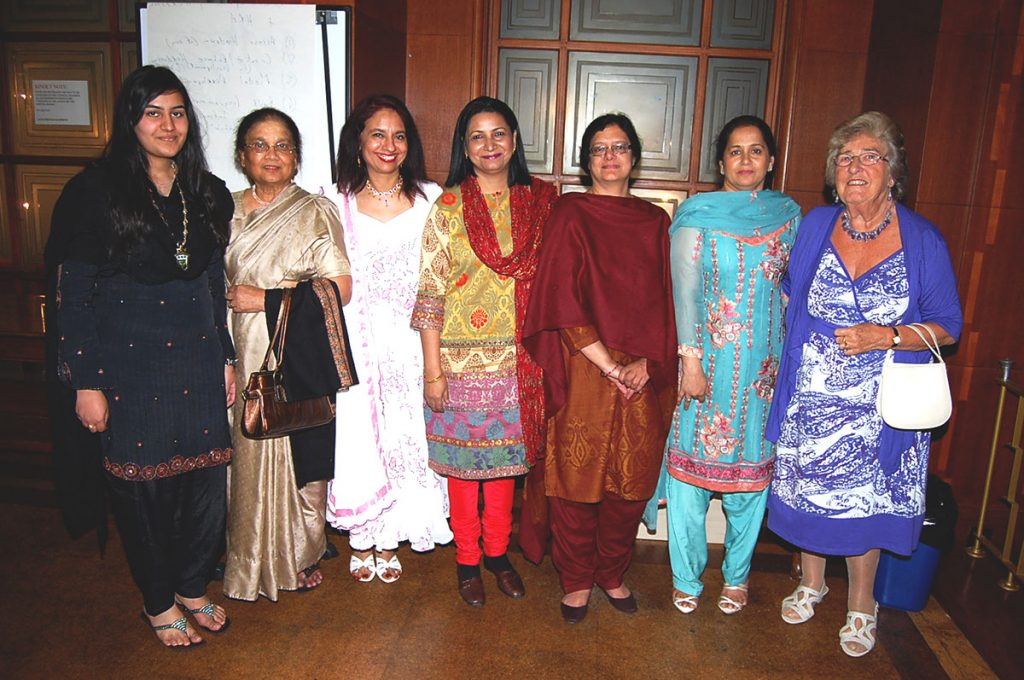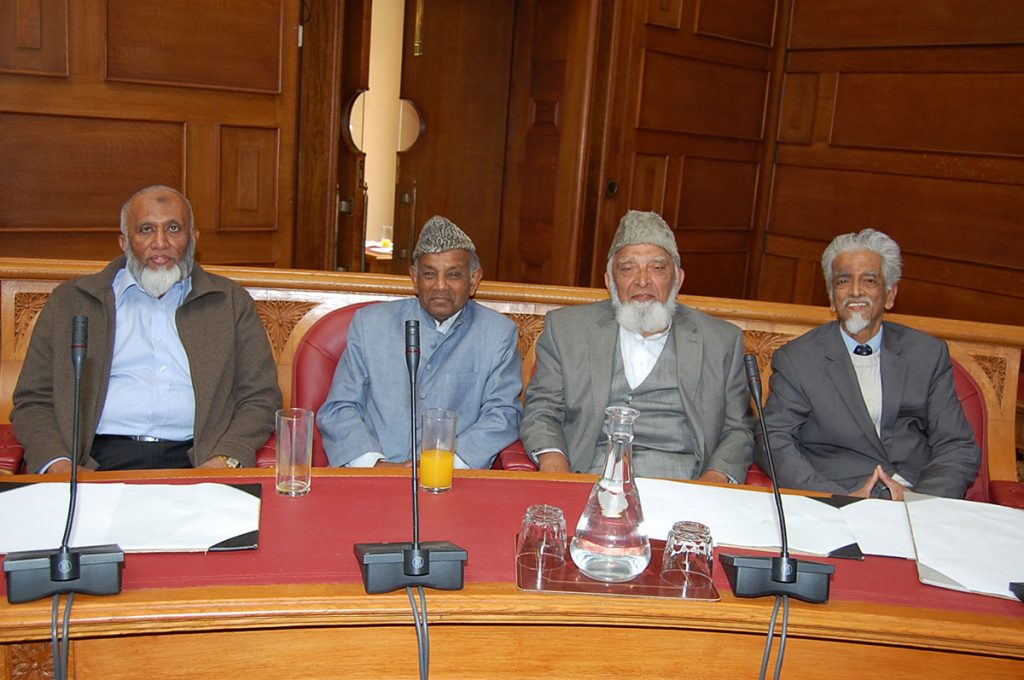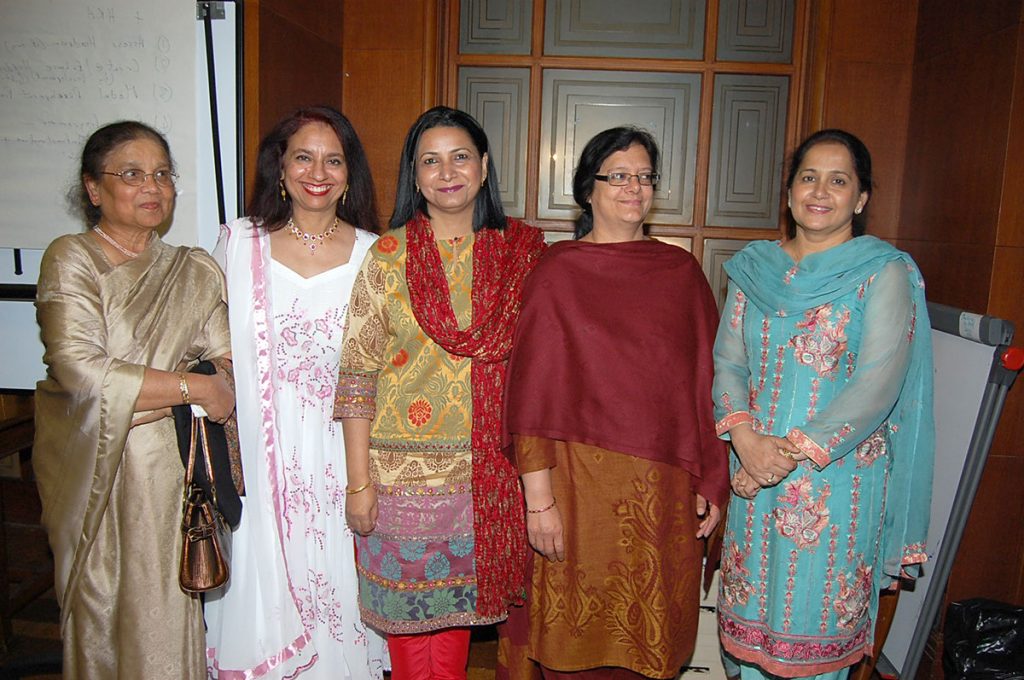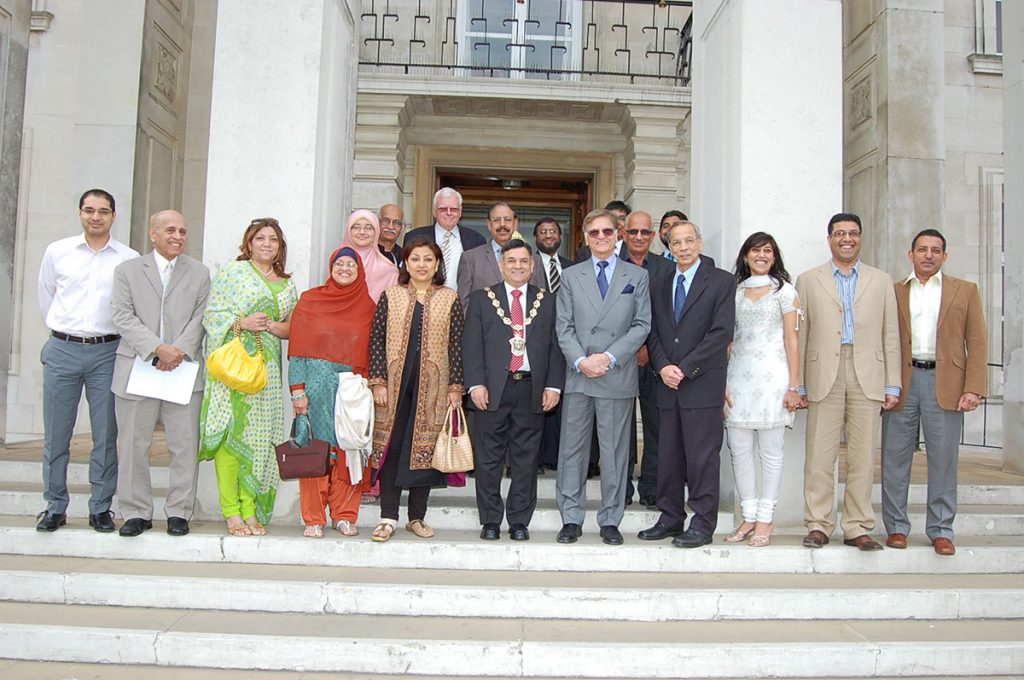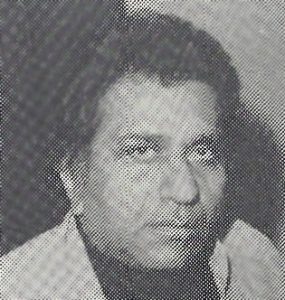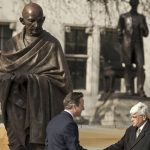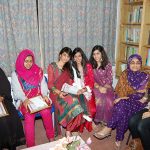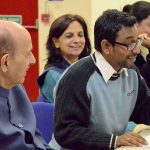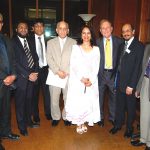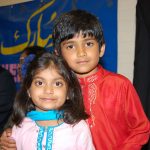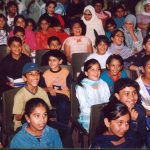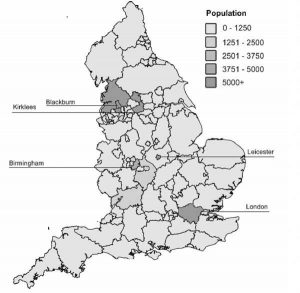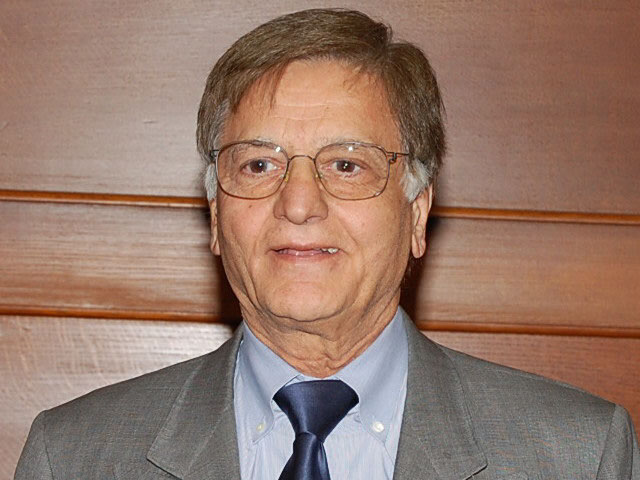
Article by Shamsuddin Agha
Gulam Kaderbhoy Noon, Baron Noon, MBE (24 January 1936 – 27 October 2015) was a British businessman originally from Mumbai, India. He was known as the “Curry King”. He operated a number of food product companies in Southall, London. He was a member of the Dawoodi Bohra community.
Noon was born in 1936, into a Muslim family which operated a sweet shop in Bombay. His father died when he was 7, and a relative ran the business until Noon took over its management at the age of 17. He renamed the shop “Royal Sweets”, and expanded its clientele and size until it was capable of exporting internationally.
In 1964, Noon travelled to Britain and emigrated permanently in 1972.
He established a sweet shop in Southall, producing such products as Bombay mix. Noon founded and operated a number of food product companies in Southall, London, specialising in lndian cuisine. His main business was Noon Products which he established in September 1987, manufacturing chilled and frozen lndian and Thai ready meals, predominantly for UK supermarkets. Whilst he didn’t invent the dish, Noon is credited with the popularity of chicken tikka masala in Britain.
In 1994, the company experienced a serious factory fire which destroyed much of its manufacturing capability; however within ten weeks of this fire the company had begun selling its products again. Noon kept all his staff in employment during this period.
He was made a Member of the Order of the British Empire (MBE) in the 1996. He was later made a Knight Bachelor in the 2002. On 27 January 2011, he was created a life peer as Baron Noon, of St John’s Wood in the London Borough of Camden and was introduced in the House of Lords on 31 January 2011, where he sat on the Labour benches.
He was awarded an Honorary Degree from the University of East London on 12 November 2009. In January 2013, Lord Noon was appointed as the chancellor of the University of East London. On 26 April 2012, Noon was a made a Fellow of Birkbeck College of the University of London.
1936 – 2015
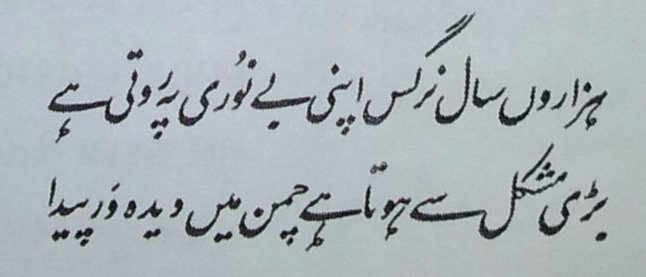
(For a thousand years the narcissus has been lamenting its blindness; With great difficulty the one with true vision is born in the garden).
لارڈ نون کی وفات پر
دل وجان سے پیارا
ہر کسی کا دلارا
تھا وہ سب کی اٰنکھوں کا تارا
وہ بیشک تھا ہمارا نون
جو تھا بے انتہا مالکِ عزت
جو تھا بے انتہا مالکِ شہرت
جو تھا بے انتہا صاحبِ حرمت
وہ بیشک تھا ہمارا نون
کیٰ روتوں کو جس نے ہنسایا
کتنے لوگوں کی قسمت جگایا
غرضمندوں کی ظلمت مٹایا
وہ بیشک تھا ہمارا نون
میرا بھایٰ تھا وہ جان والا
میرا بابا تھا وہ اٰن والا
میرا نانا تھا وہ شان والا
وہ بیشک تھا ہمارا نون
کون کہتا ہے کہ وہ چلا گیا ہے
کون کہتا ہے کہ وہ بسر گیا ہے
کون کہتا ہے کہ وہ گزر گیا ہے
وہ تو ہمارے دل میں بسا ہے
وہ تو ہماری جان میں بسا ہے
نون ہمیشہ زندہ رہے گا
نون سدا پایٰندہ رہے گا
شمس الدین اٰغا
۲ نومبر ۲۰۱۵
દિલોજાન નૂન
દિલોજાનથી પણ પ્યારા
દરેકના પ્યારા
સૌની આંખોના તારા
એ, અલબત્ત, હતા આપણા નૂન.
ઇજ્જતવાન હતા
કીર્તિવાન હતા
ગૌરવવંત હતા
એ, અલબત્ત, હતા આપણા નૂન.
કંઈ કેટલાંયનાં આંસુ ખાળી હસતા ચહેરા કર્યા
હળેમળે એ દરેકનું ભાગ્ય ઉજાળ્યું
દુ:ખદરદમાંથી કેટલાંયને પાર કર્યા
એ, અલબત્ત, હતા આપણ નૂન.
એ મારા ઝિંદાદિલ ભેરુ હતા, બહાદુર હતા
એ આબરુદાર પિતા સમાન હતા
એ શાનઆબરુ વારસાની હતી
એ, અલબત્ત, હતા આપણ નૂન.
એ ગયા, એમ કોણ માનશે ?
એ ભૂલાઈ જવાના, તેમ કોણ માનશે ?
એ દિવંગત થયા છે, એમ કોણ કહશે ?
અમારાં હૃદયમાં બિરાજમાન છે
અમારાં અંતરમાં એમનું સ્થાન છે
નૂન સદાય ચેતનવંત છે
નૂન સદાય અમર છે.
(ગુજરાતી ભાવાનુવાદ : વિપુલ કલ્યાણી)
Dearer than the heart,
Dearer than the soul,
The star of all our eyes,
That was our Noon.
A man of respect,
A man of fame,
A man of dignity,
That was our Noon.
He turned so many tears into smiles,
He brought blessings to all he met,
He freed countless from misery,
That was our Noon.
“My brother was brave”,
“My father was dignified”,
“My grandpa was awe-inspiring.”
That was our Noon.
Who’s to say that he is gone?
Who’s to say that he is no more?
Who’s to say that he has passed?
He lives in our hearts,
He rests in our souls,
Noon is forever,
Noon is eternal.
English Translation: Qudsiyah-Bano Agha-Shah

Hospital Bed Rajasthan 
Memorial Rajasthan Hospital Reception 
Memorial Rajasthan Hospital 
Memorial Rajasthan Hospital 
Gulam Noon Memorial Service Rajasthan Hospital 
Rajasthan Hospital blood pressure 



Guests Arun Harnal 
Memorial GK Noon Guests-Harnal Sekhon 
GK Noon’s daughters 

Noon’s surviving family 
Shiv Sena chief Uddhav Thackery meets with relations 

Taj Lands Memorial 
